
Written by Alec Pain (Alastair Place)
Can you tell the difference between these two pictures?
They are both taken with the Holga, but which one is with a glass lens and which one with a plastic lens?
It’s minimal, but I think there are differences between the Holga’s plastic and the Holga’s glass lenses, and certainly, I swear I’ve seen more detail coming from glass lenses.
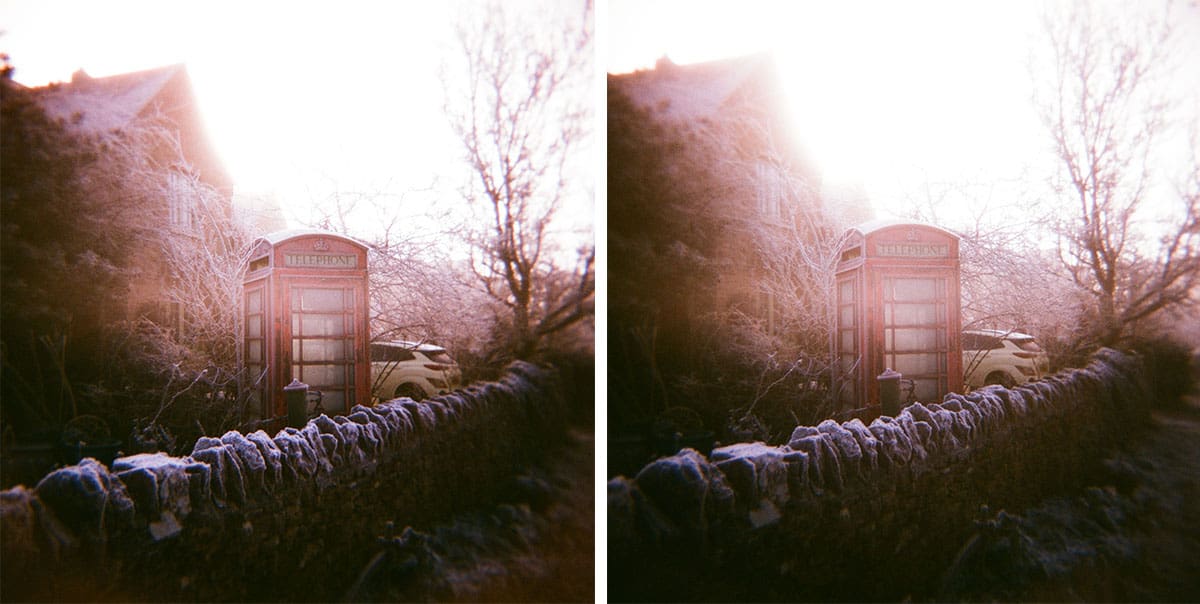
On receiving my comparison shots back from theminilab, I have been able to see a minimal difference between them. Whether or not the difference is great enough for you to buy one or the other is a different story. For reference, the Holga 120N is a plastic camera, and any Holga with a G in it (Holga 120GN, GFN, GCFN, GTLR) has a glass lens and any without the G has a plastic lens.
In the two images above, the shot on the left is Glass, and the shot on the right is Plastic. Both taken within seconds of each other and on Harman Phoenix I film.
What are the tell tale signs you have used a glass or a plastic lens? I think that the Glass is a little sharper – the telephone box and the front of the wall all seem to me to be sharper than the Plastic’s hazy telephone box. The blur more pronounced.
I’ll show a lot more examples comparing the two Holga lenses in this article, and, at the end of the article, I’ll also give you a few other lenses to try with the Holga.
Find the plastic lens Holga 120 and the glass lens Holga 120 on Amazon.
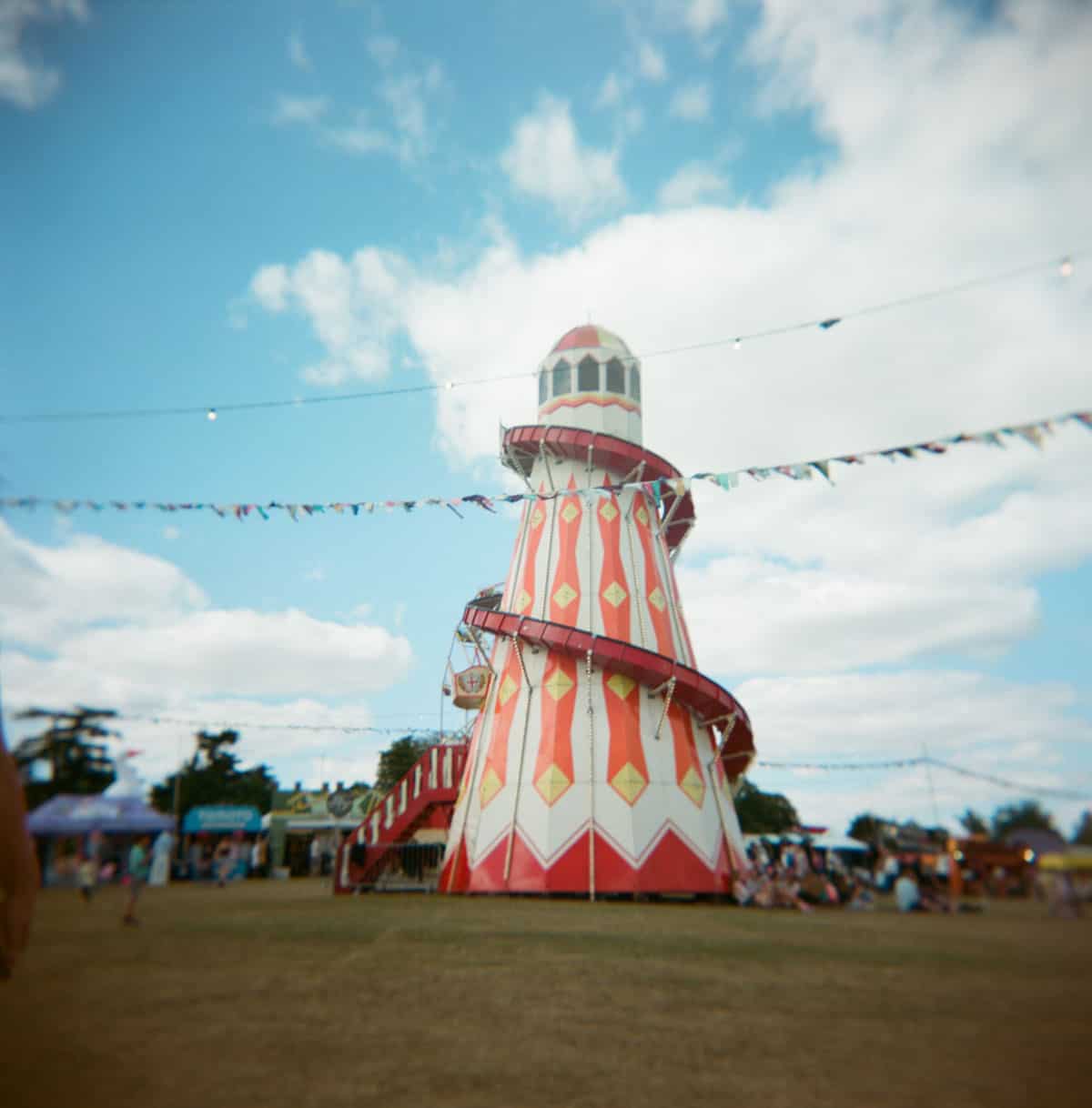
Holga Glass Lens & Plastic Lens Comparison
Here are two more shots, this time taken in the Snowdonia region of North Wales. Minimal differences again at best.
The road in the top image is clearer, the tree in the bottom image marginally blurrier! What I am starting to notice is that the glass lens seems to let in a little more light.
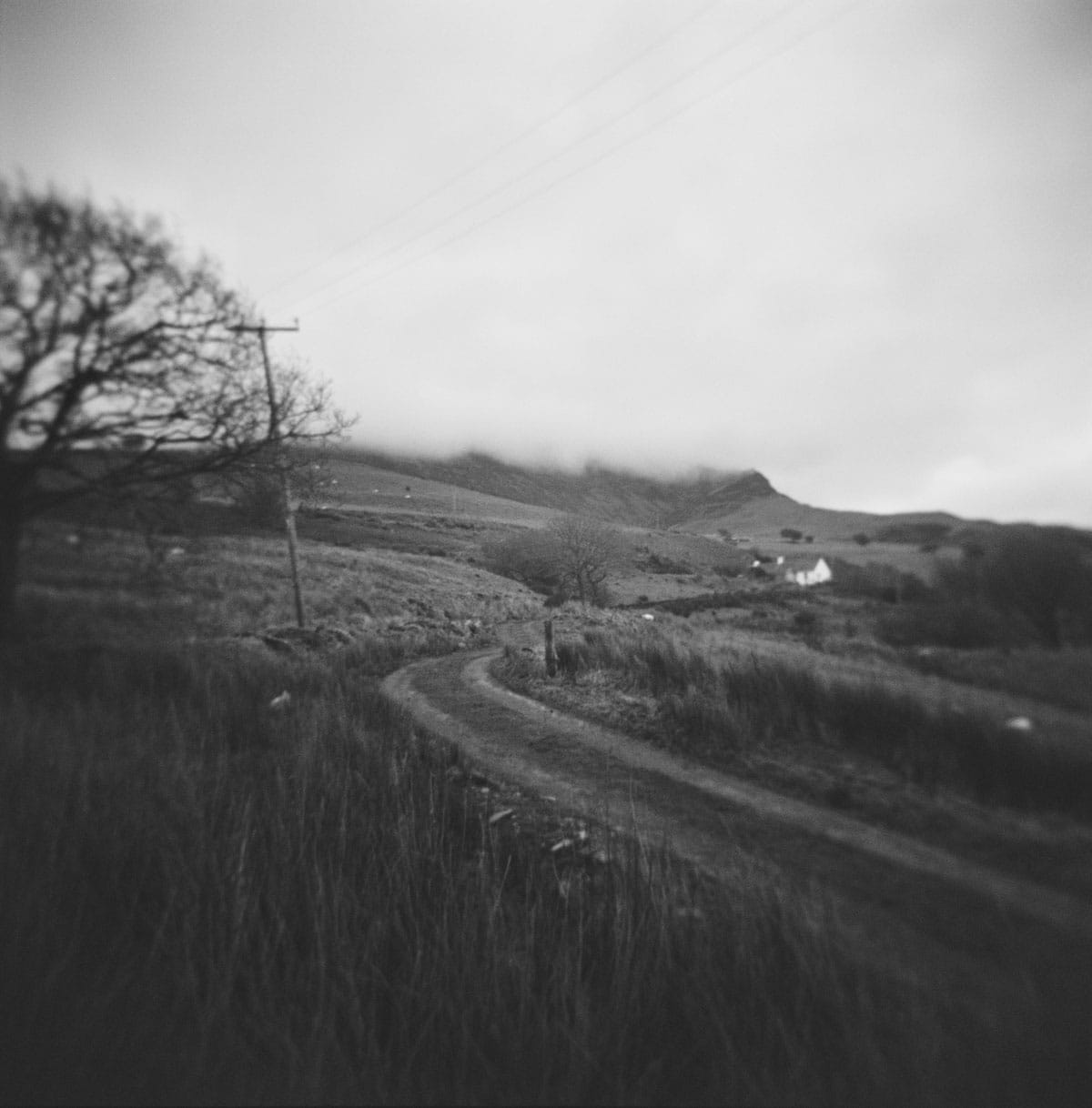
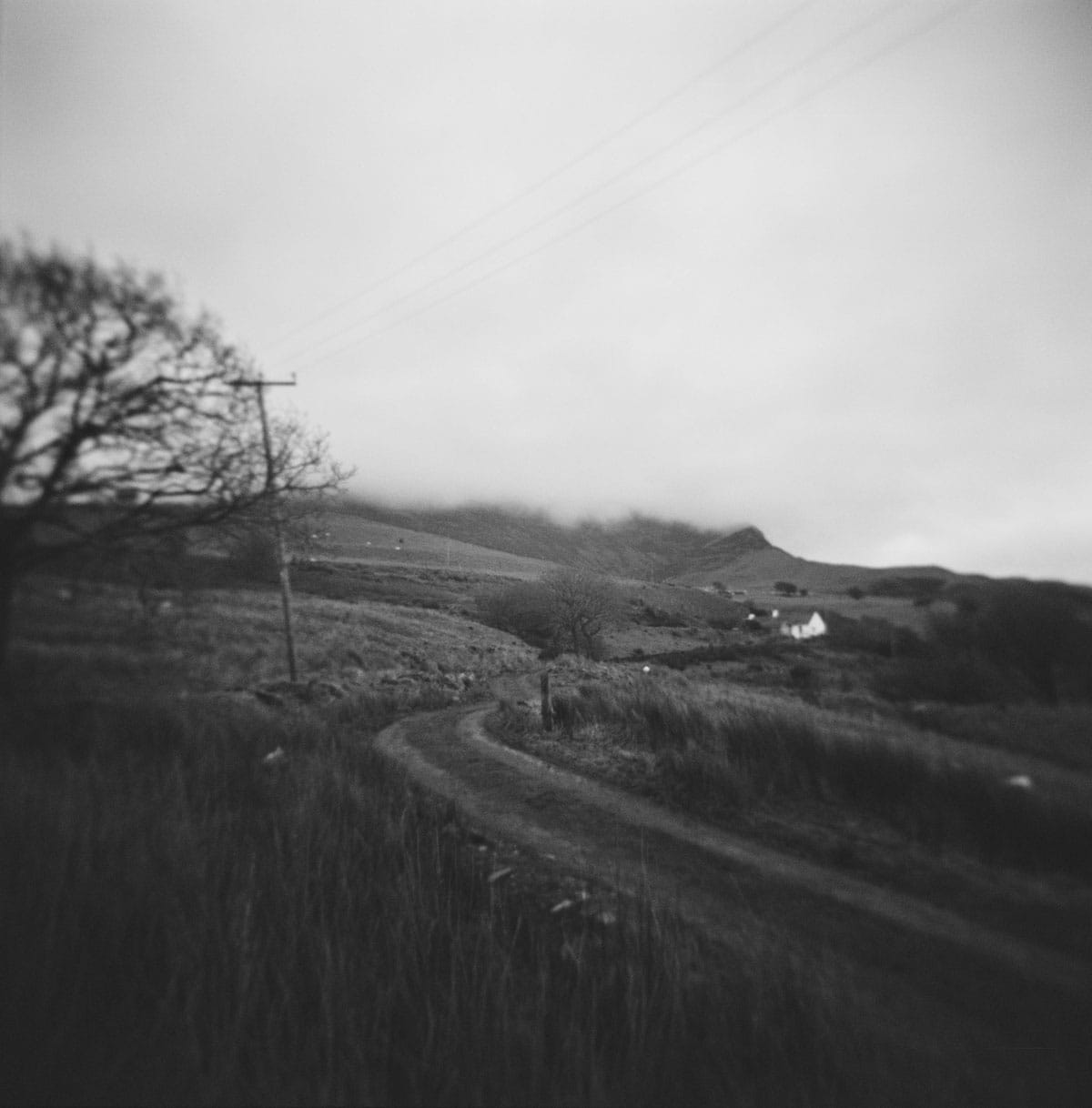
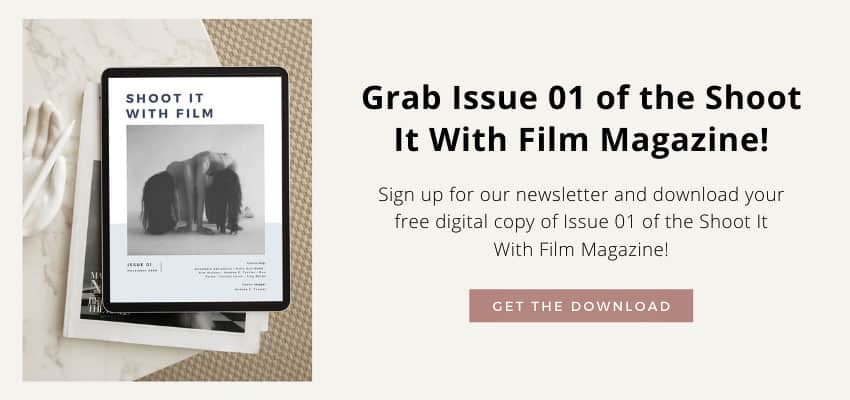
You can see the difference in light on the next set – again the Glass lens is the top image.
The grass is a little crisper, the tree – whilst not centered on the left is lighter, and I think – just – sharper. The blur on the right one more pronounced.
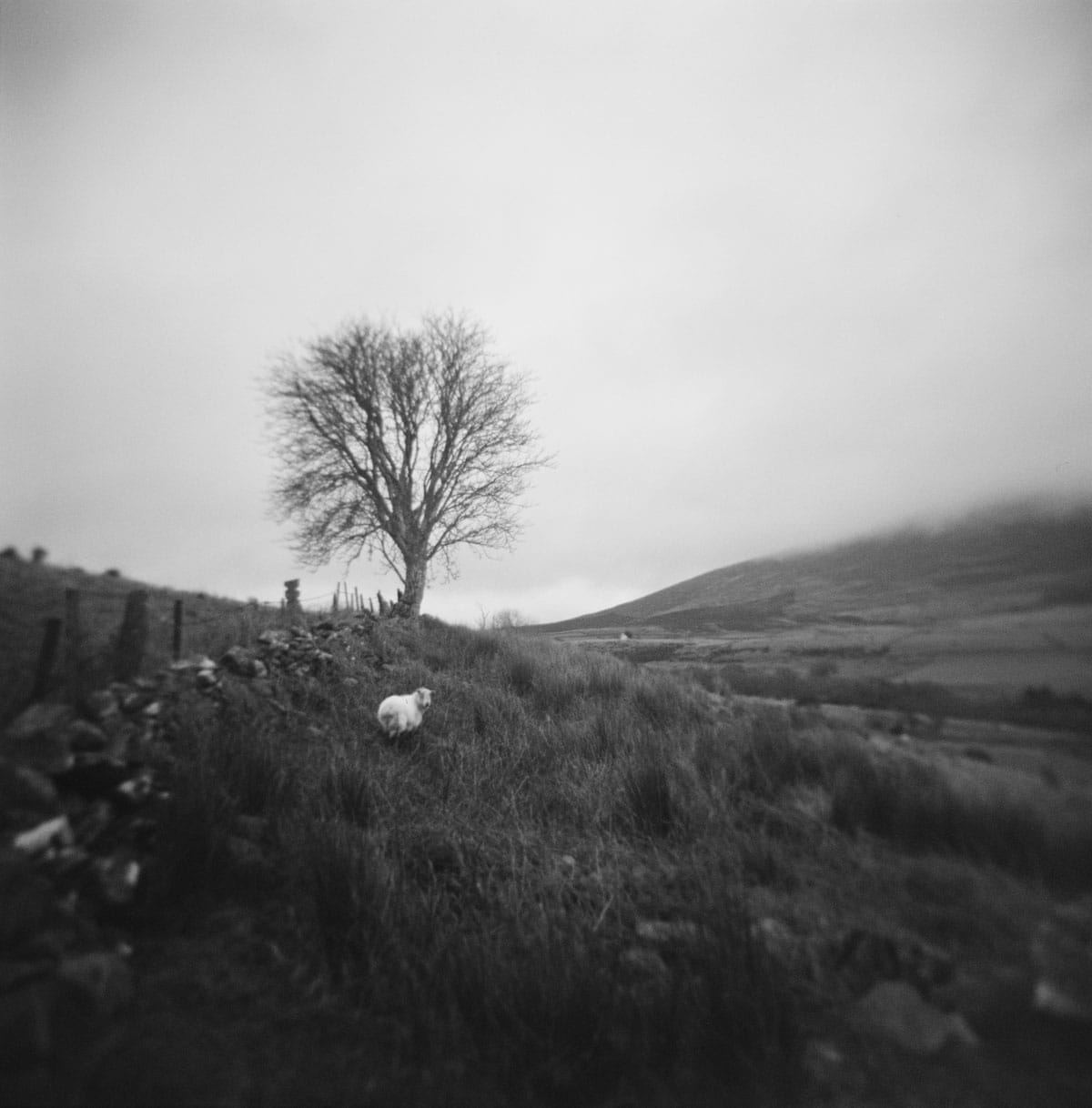
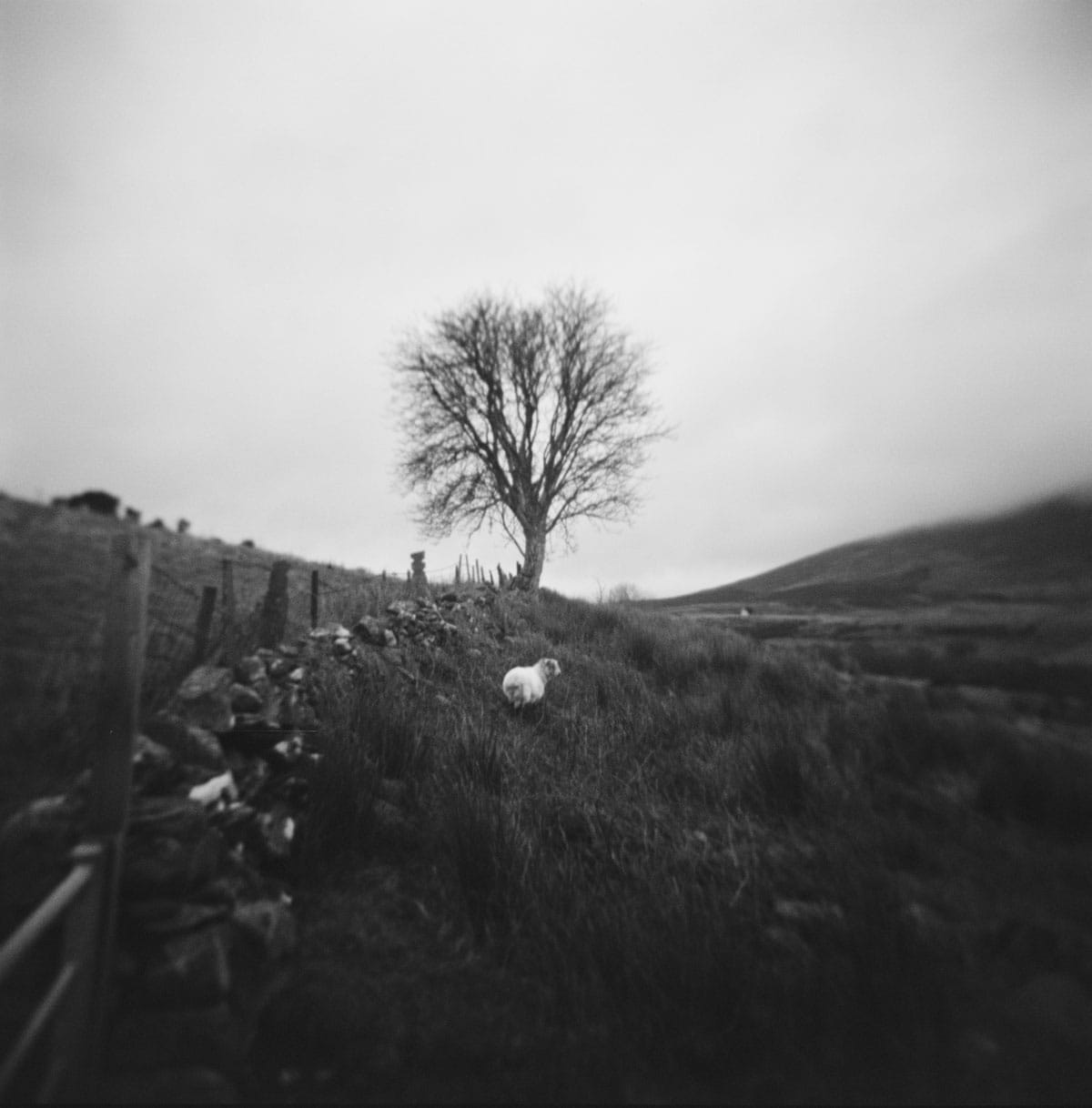
With this one – where the image is further away – and viewing the last two – the Holga vignette actually seems more pronounced with the glass lens. The detail I still think is there in the waves of the lake at the bottom left of the image, but there’s really a very very minimal difference here!
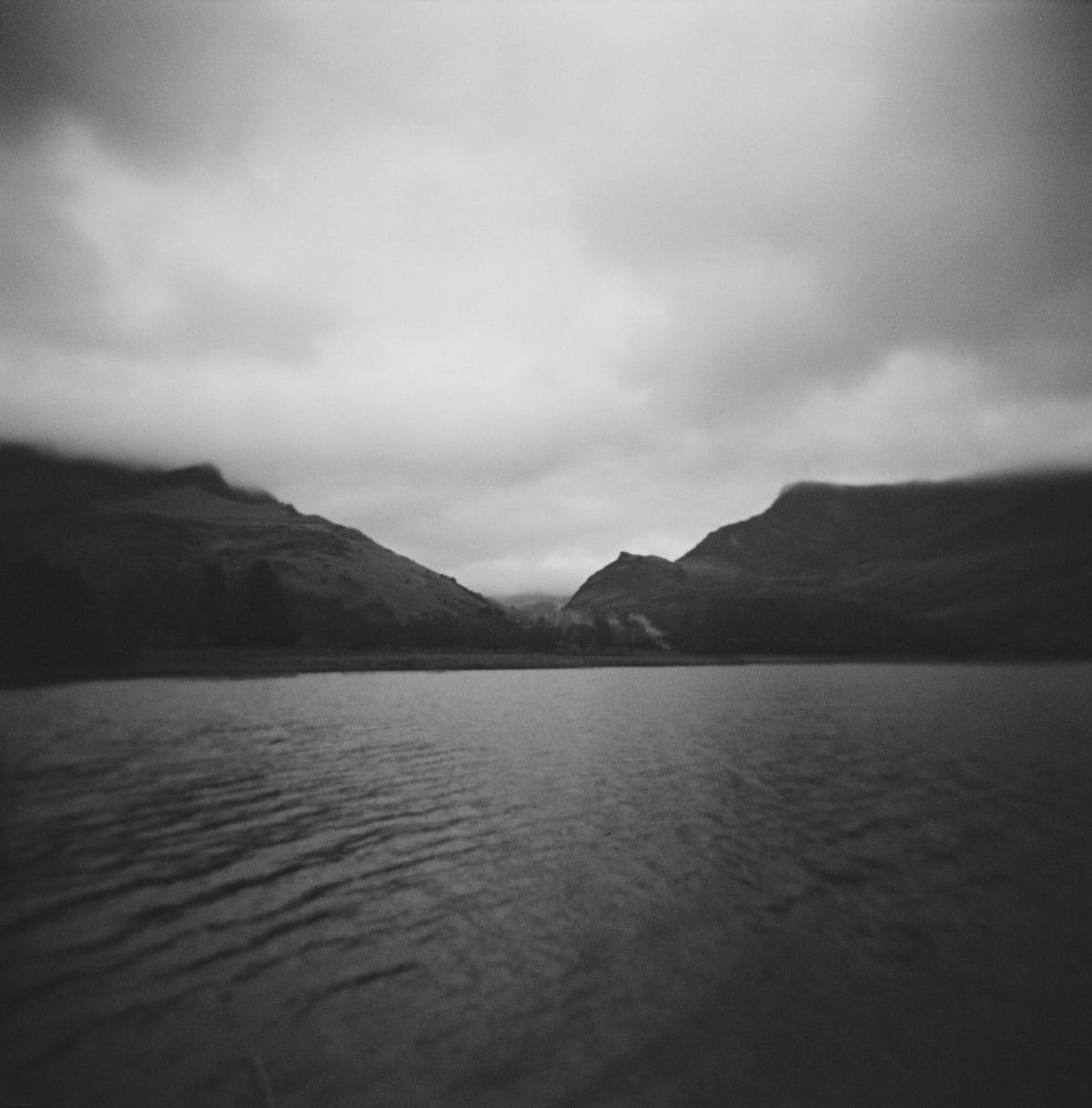
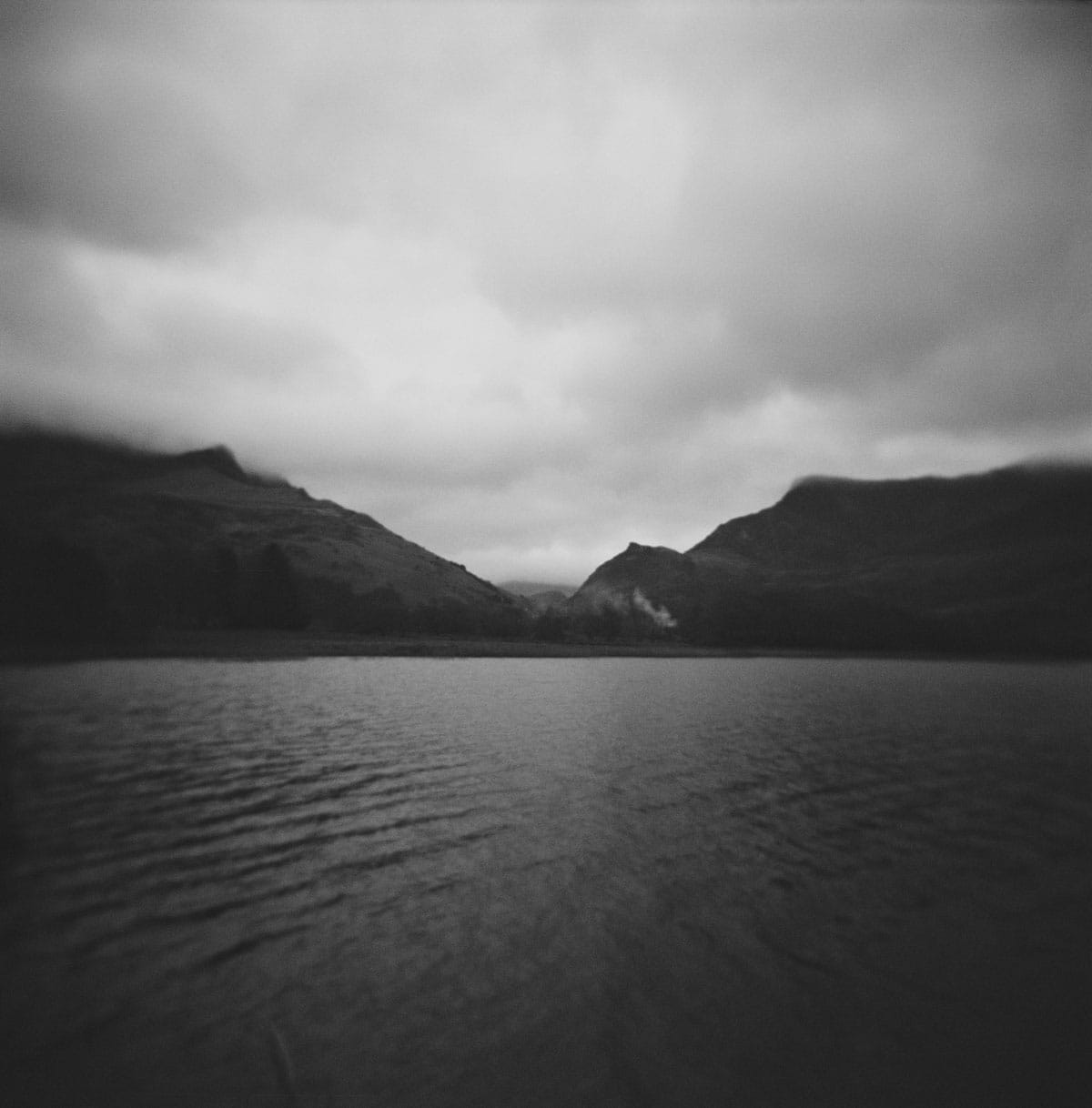
Back in my home town, here’s some more shots of the woods around it. The clarity is greater in the top image, the vignetting stronger also.
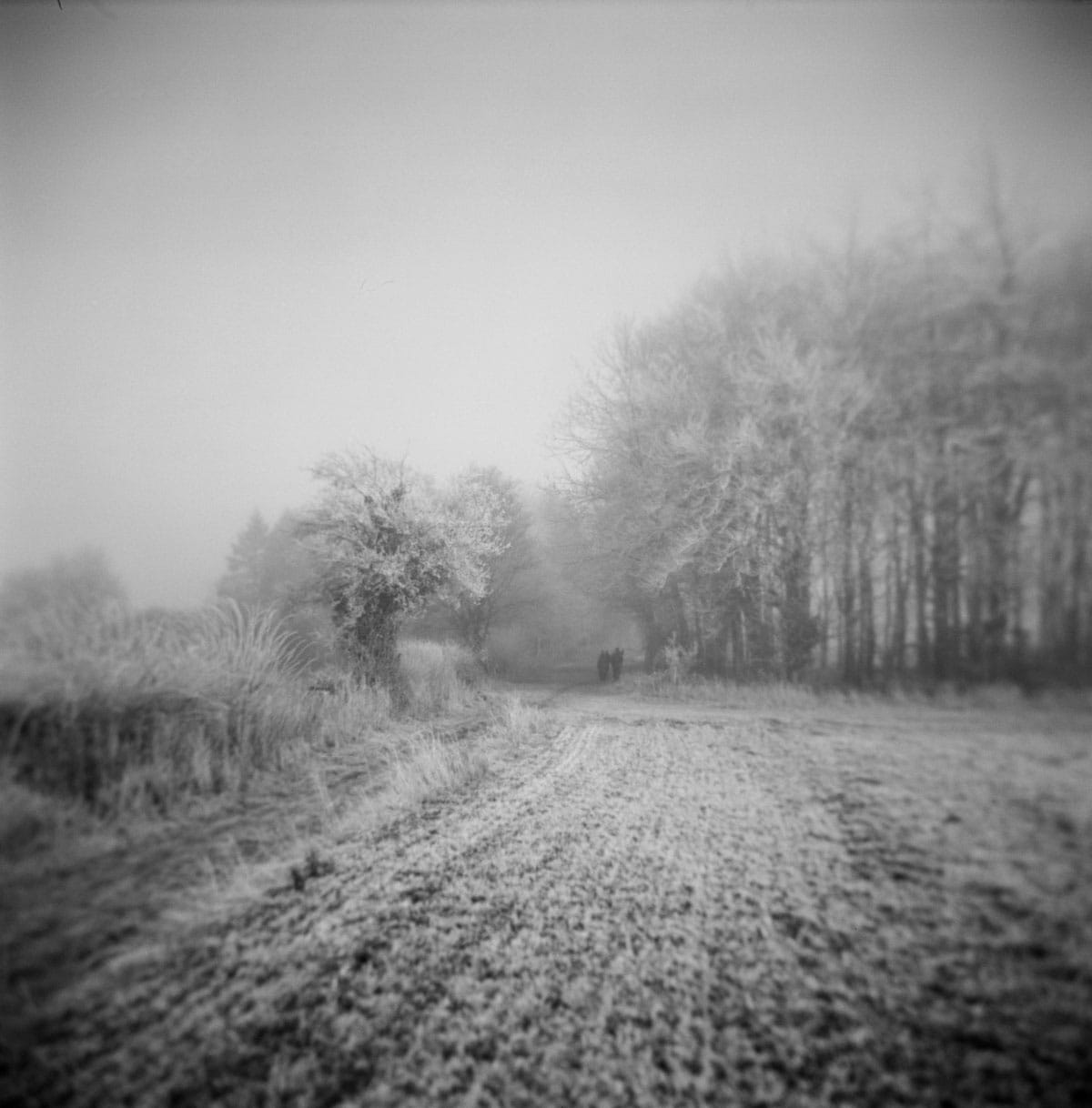
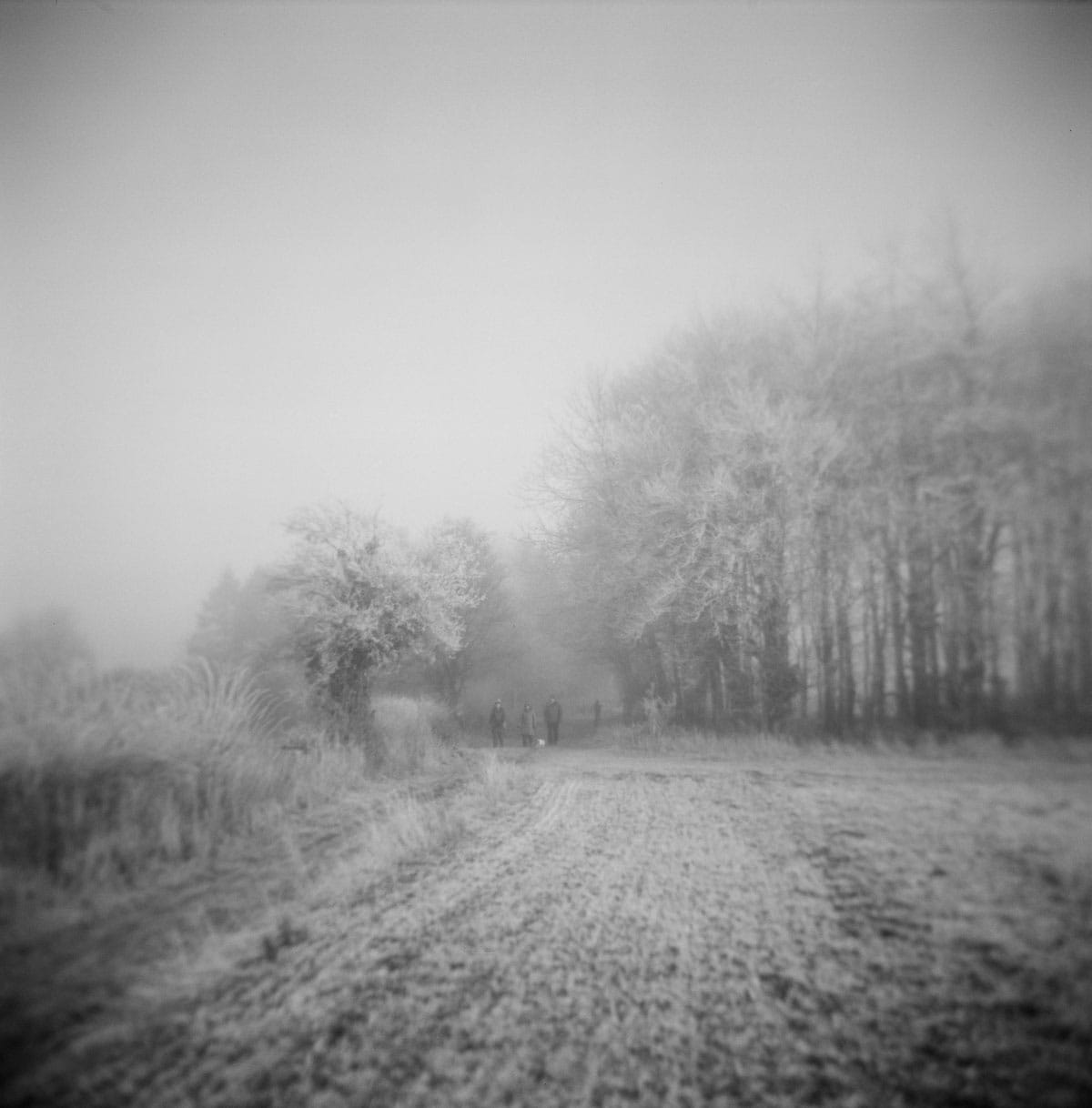
Again, the glass “wins” on sharpness, here in the woods.
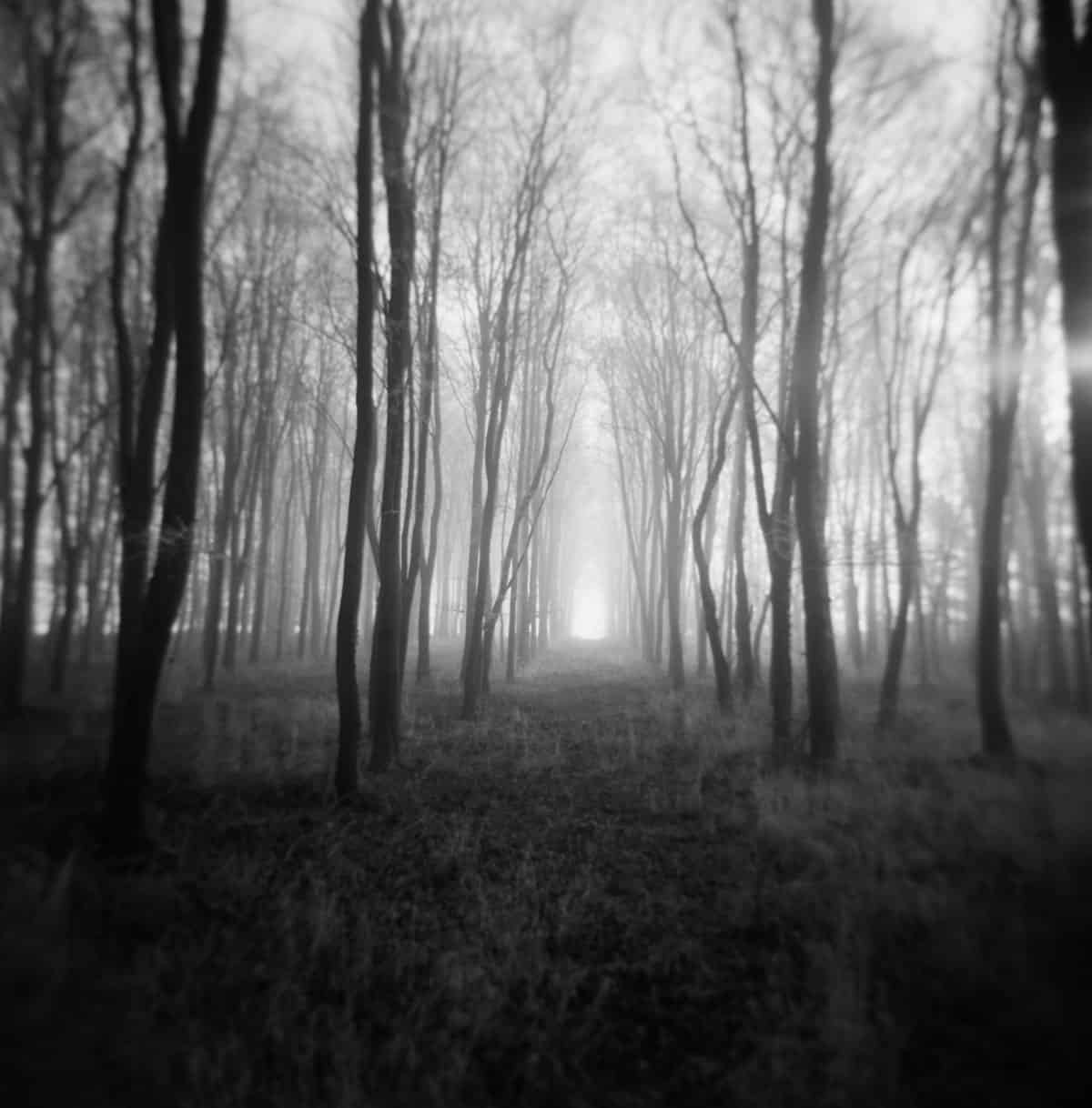
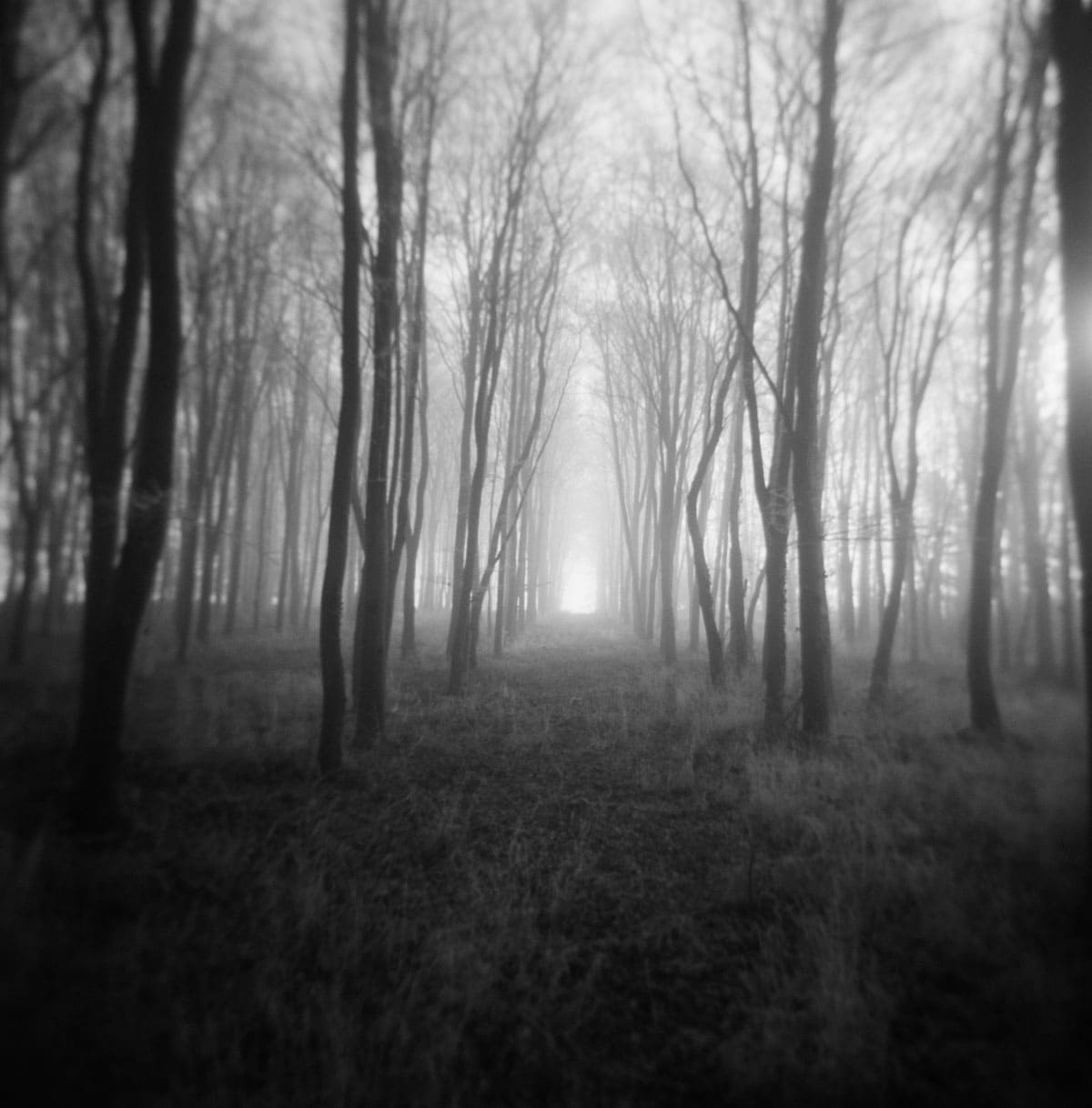
Can you see the wood for the trees (or the glass for the plastic!)? It does here with the tree trunk on the left, but only just…
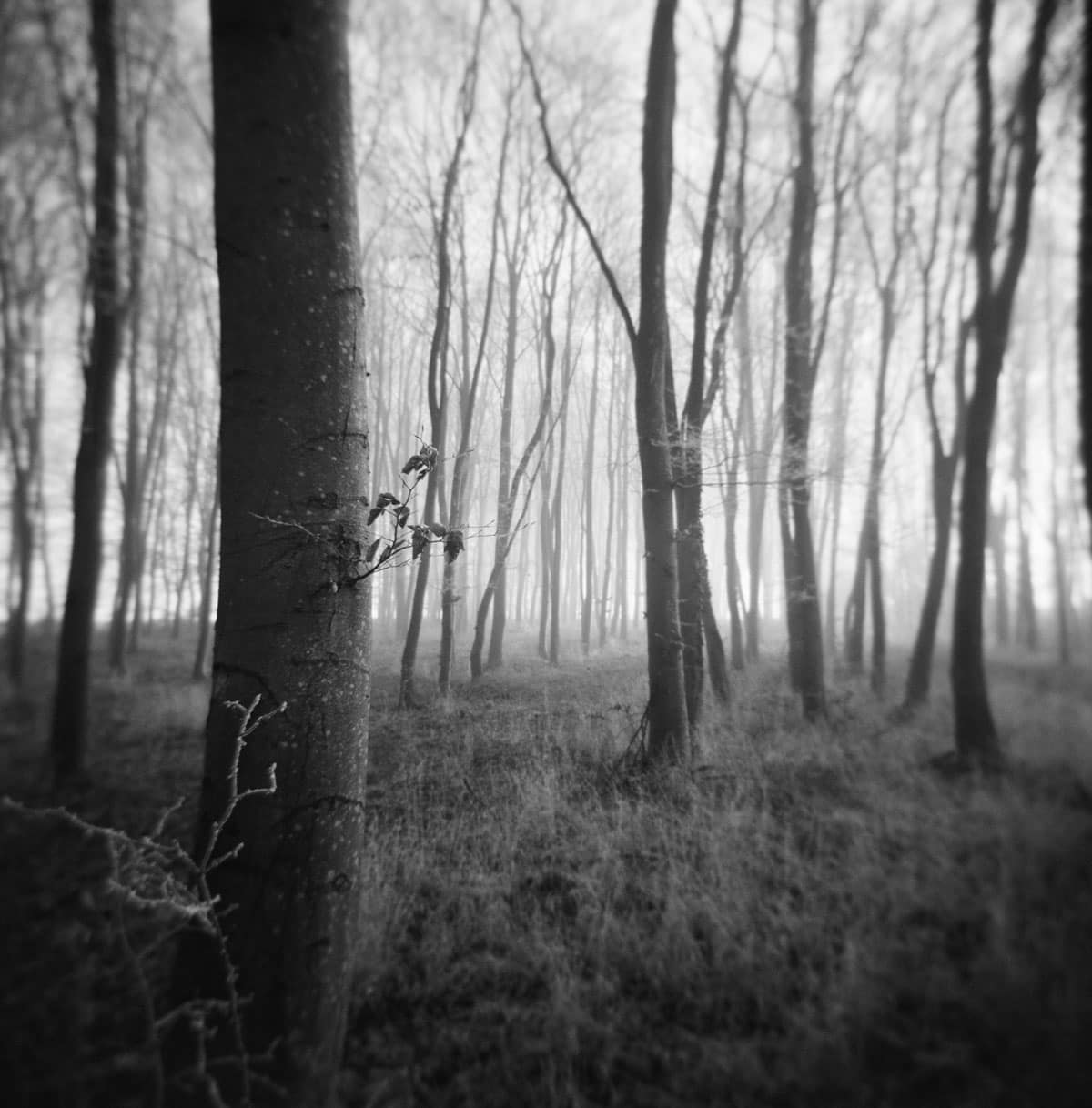
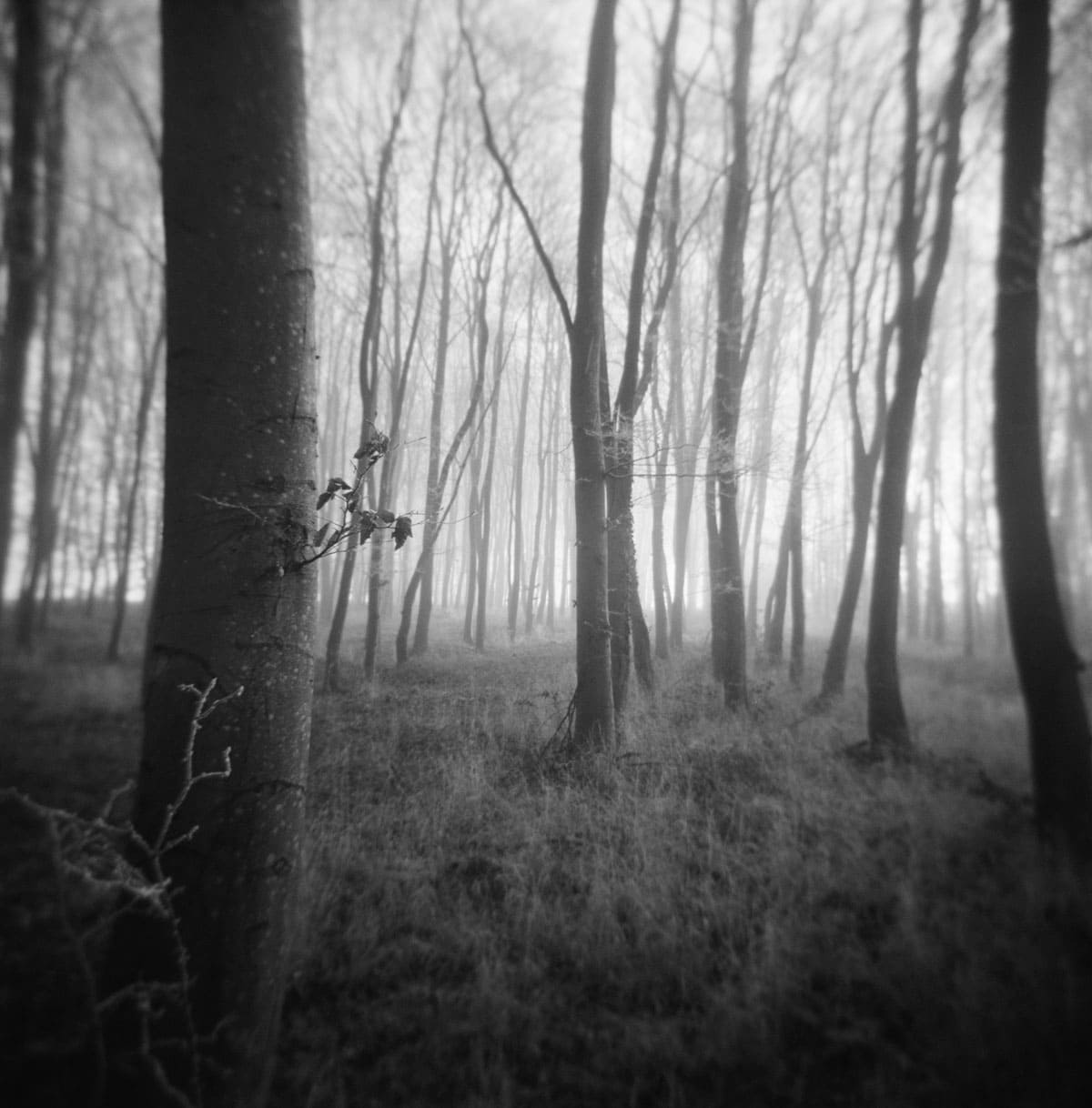
And there’s definitely a little more light here on the left in both shots:
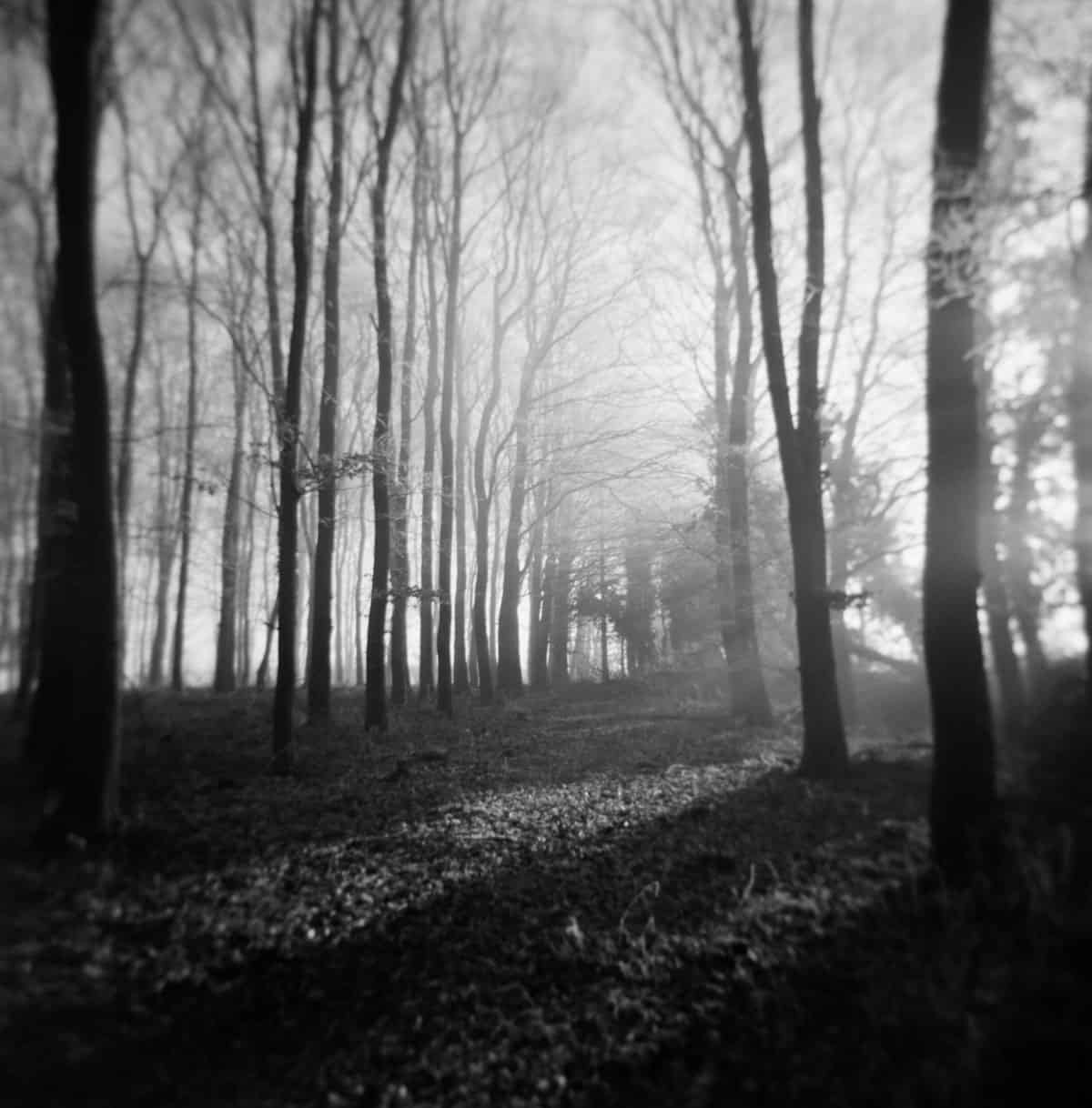
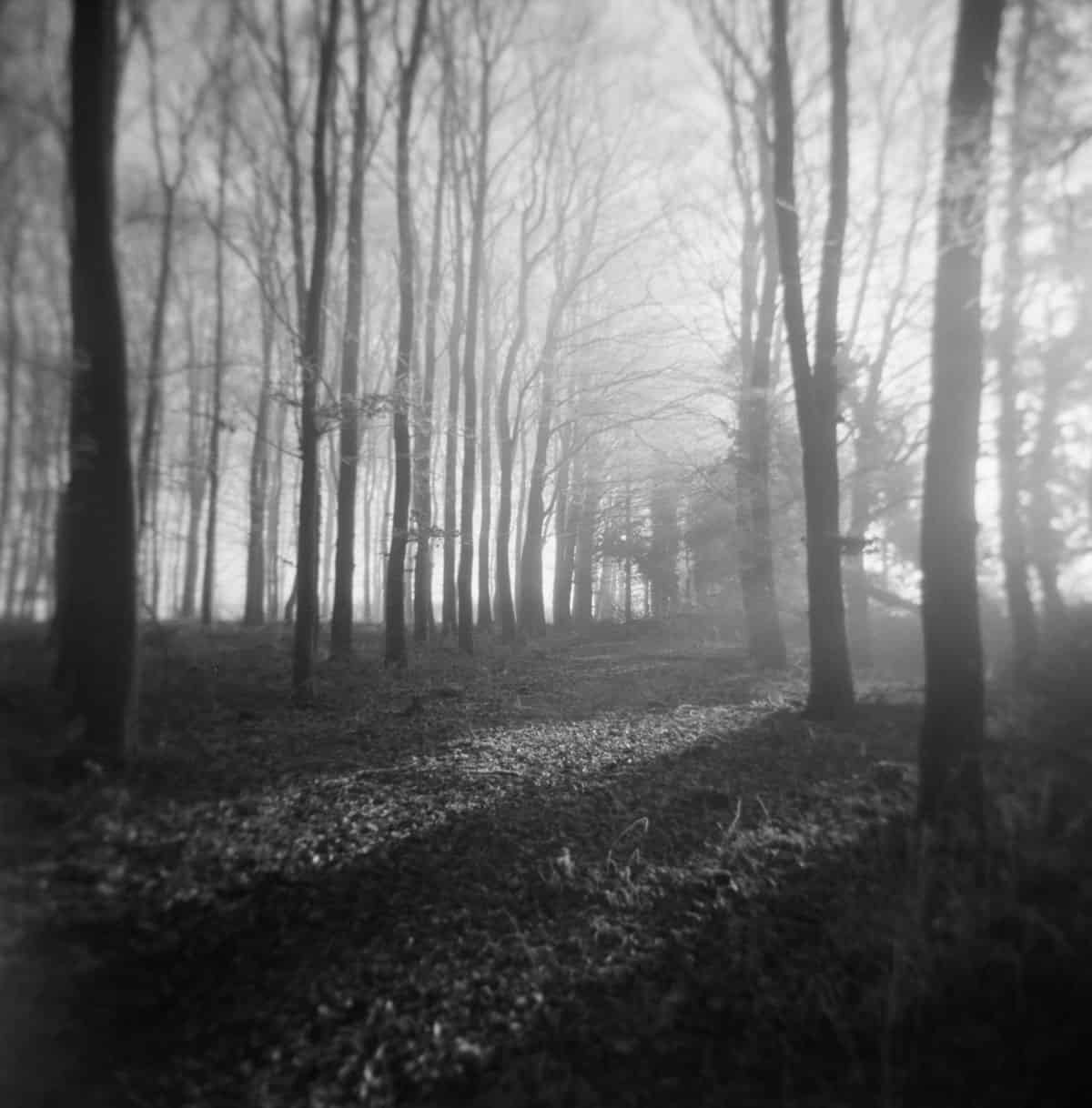
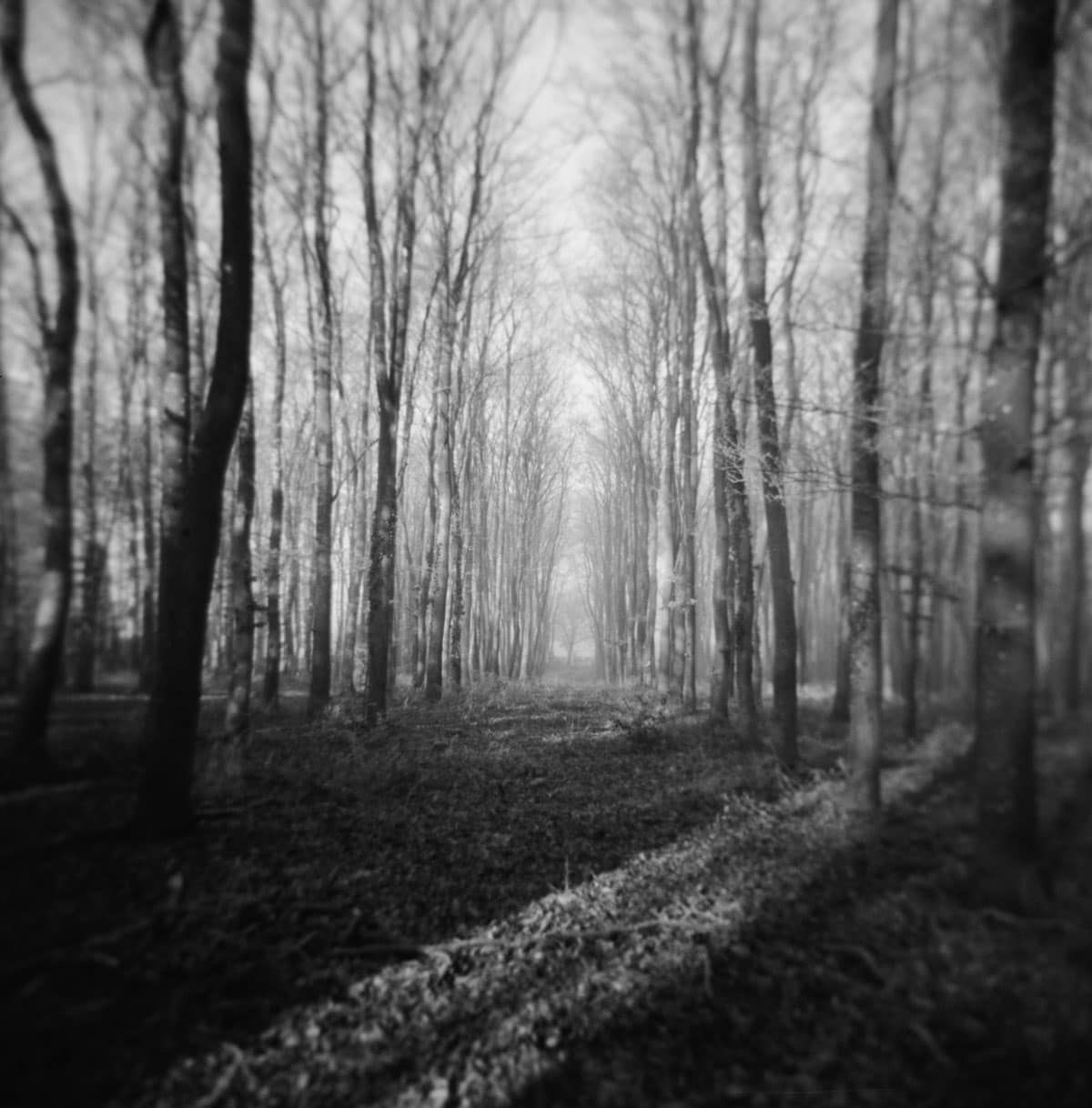
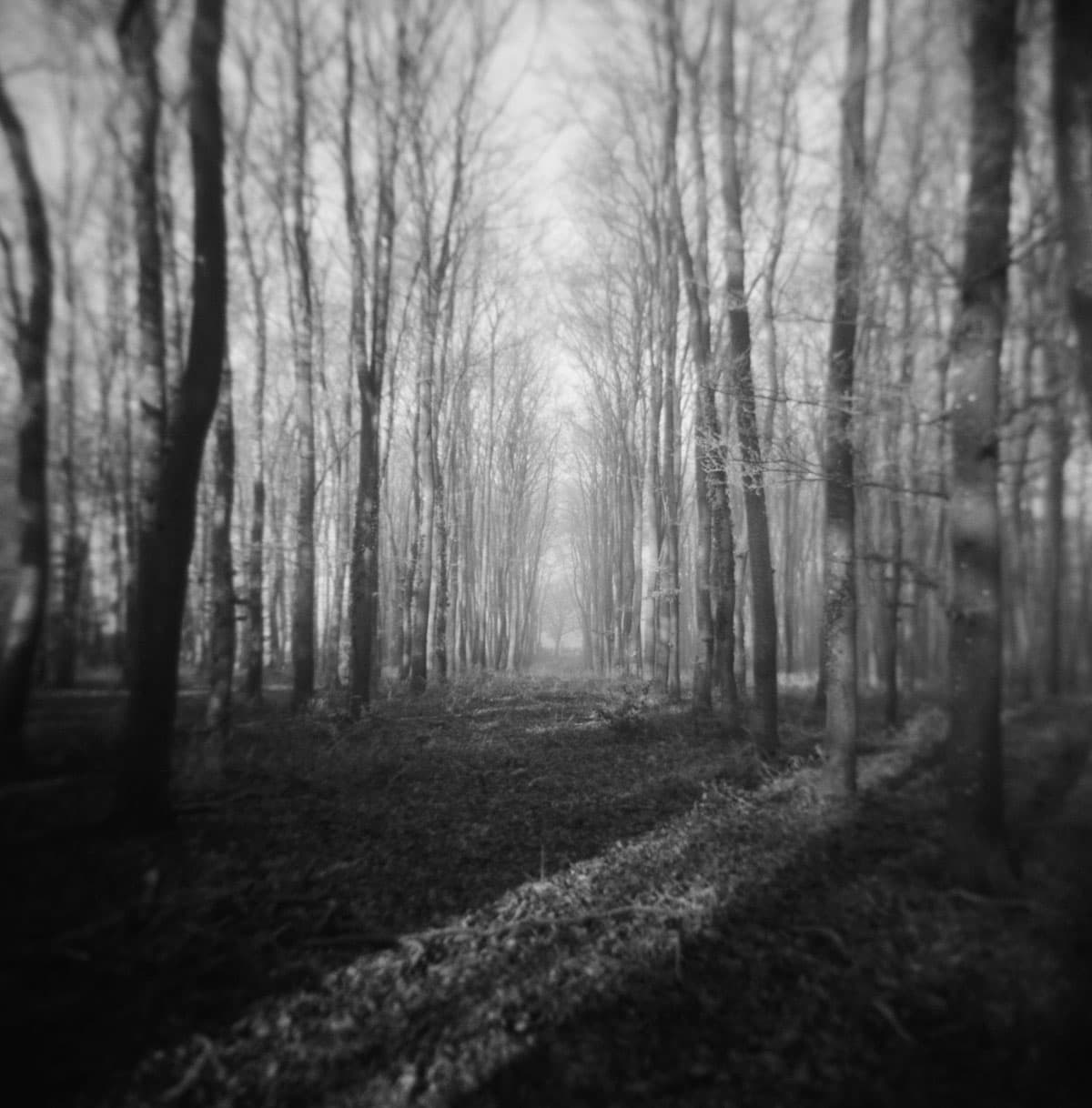
Portraits with the Holga Glass & Plastic Lenses
I’ve not been able to take too many portrait shots on my Holga – and when I did I’d left the camera on B setting!
These portraits were taken by portrait photographer Alistair Prentice (@portraitsofni on Instagram). His comments are that the 120N (plastic lens) is sharper outside of the center, where as the GCFN (glass lens) is sharper in the middle but has more pronounced fall off towards the edges.
In terms of sharpness, the GCFN pulls ahead slightly in the lead for outright sharpness in the middle:
Glass (Holga GCFN)
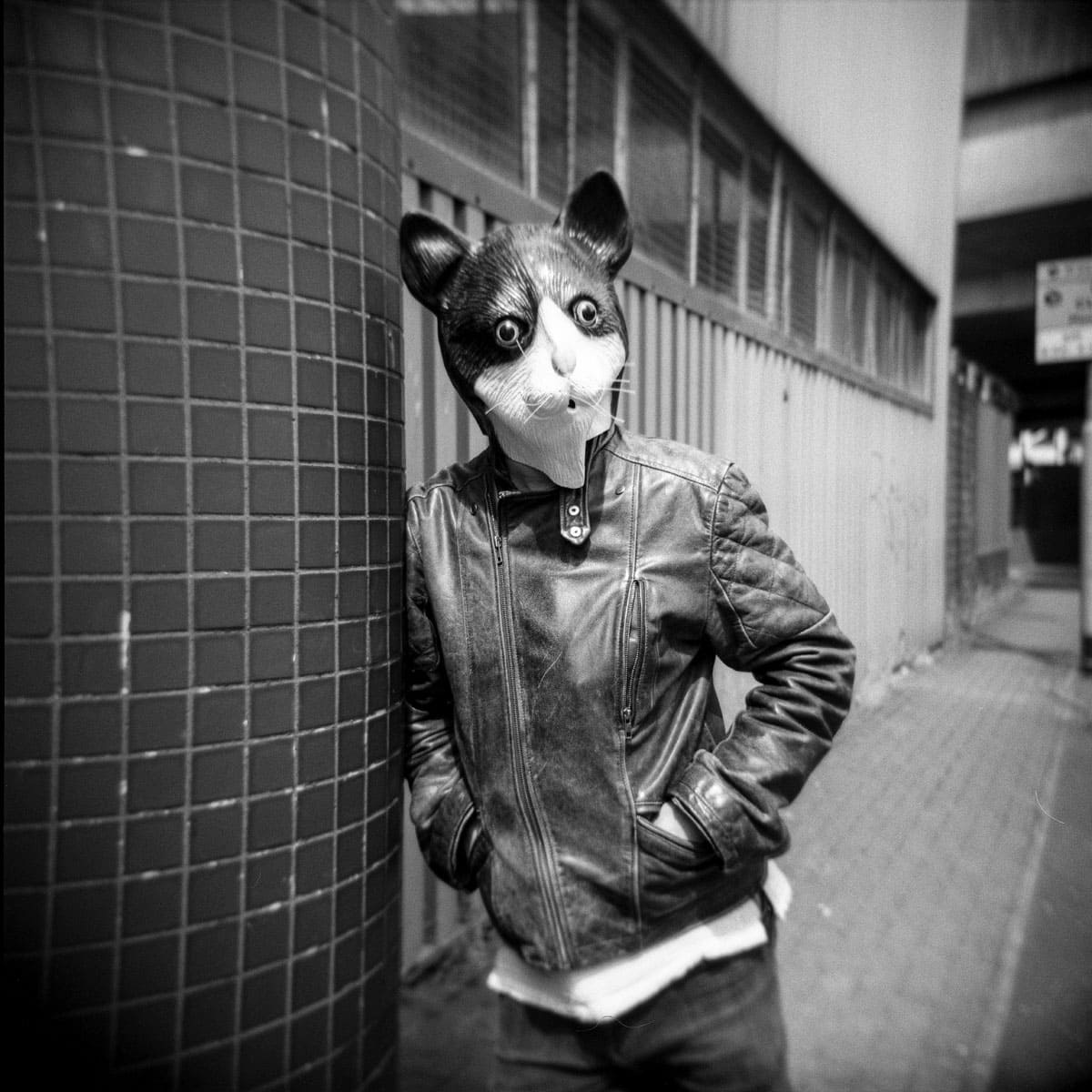
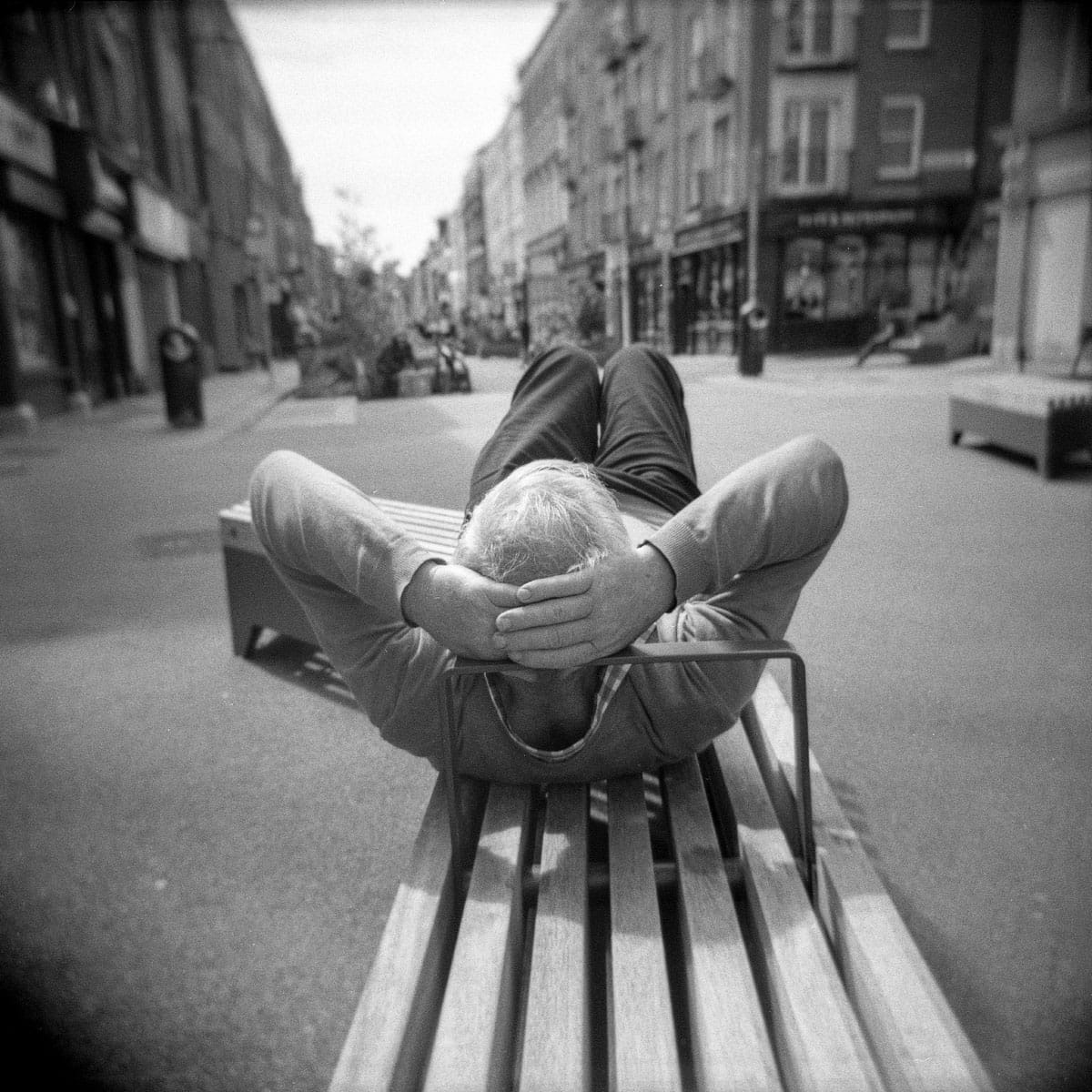
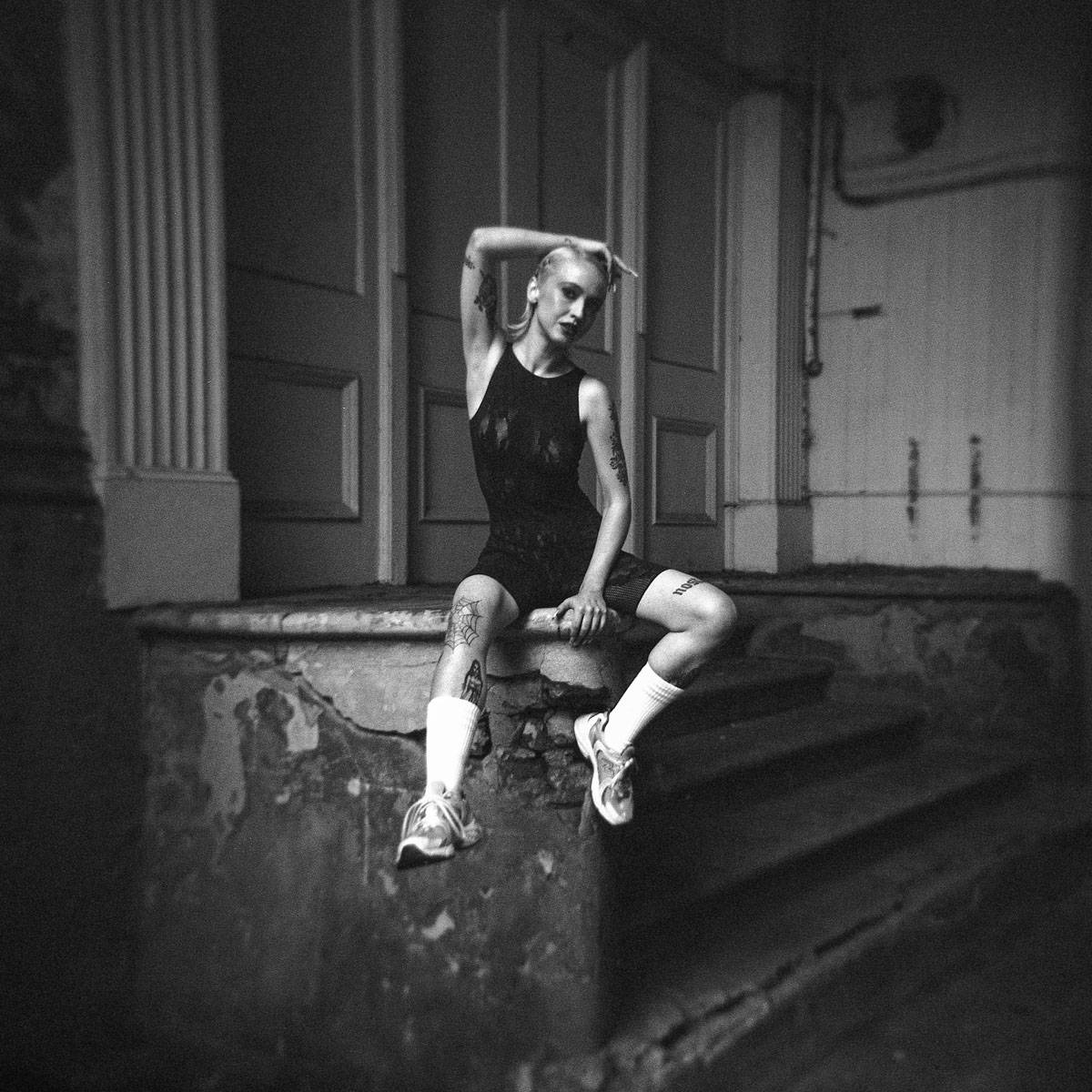

Plastic lens (Holga 120N)
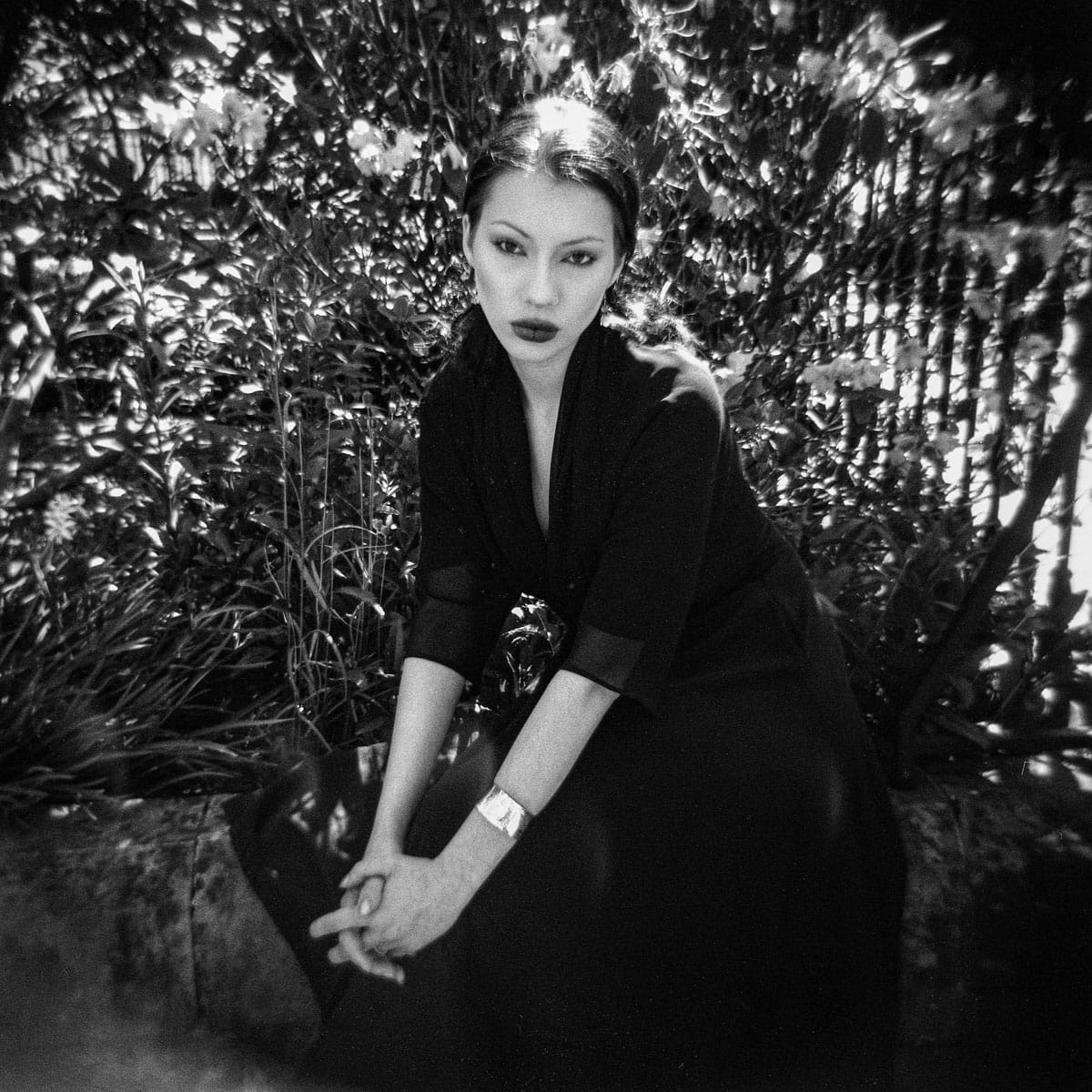
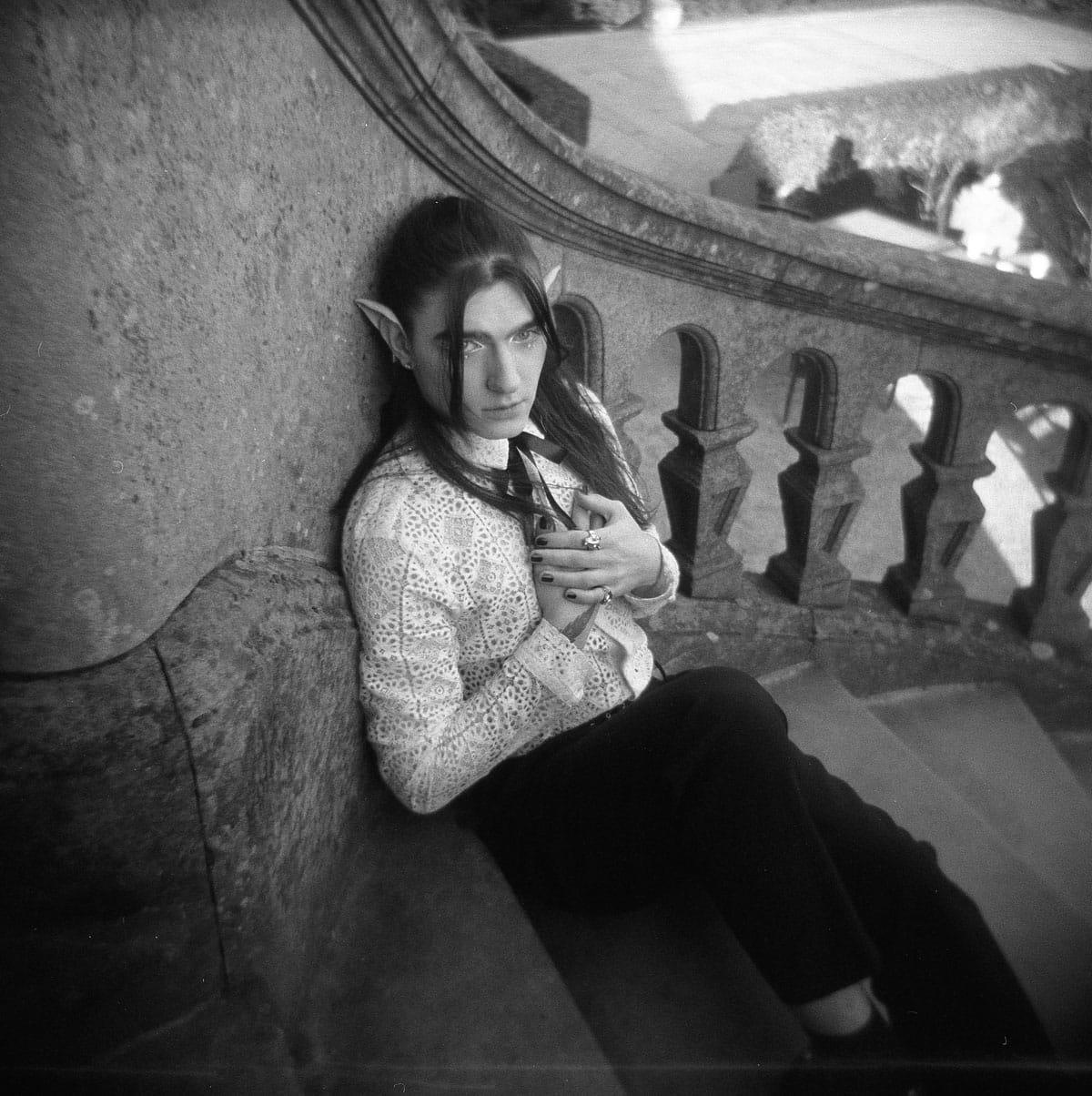
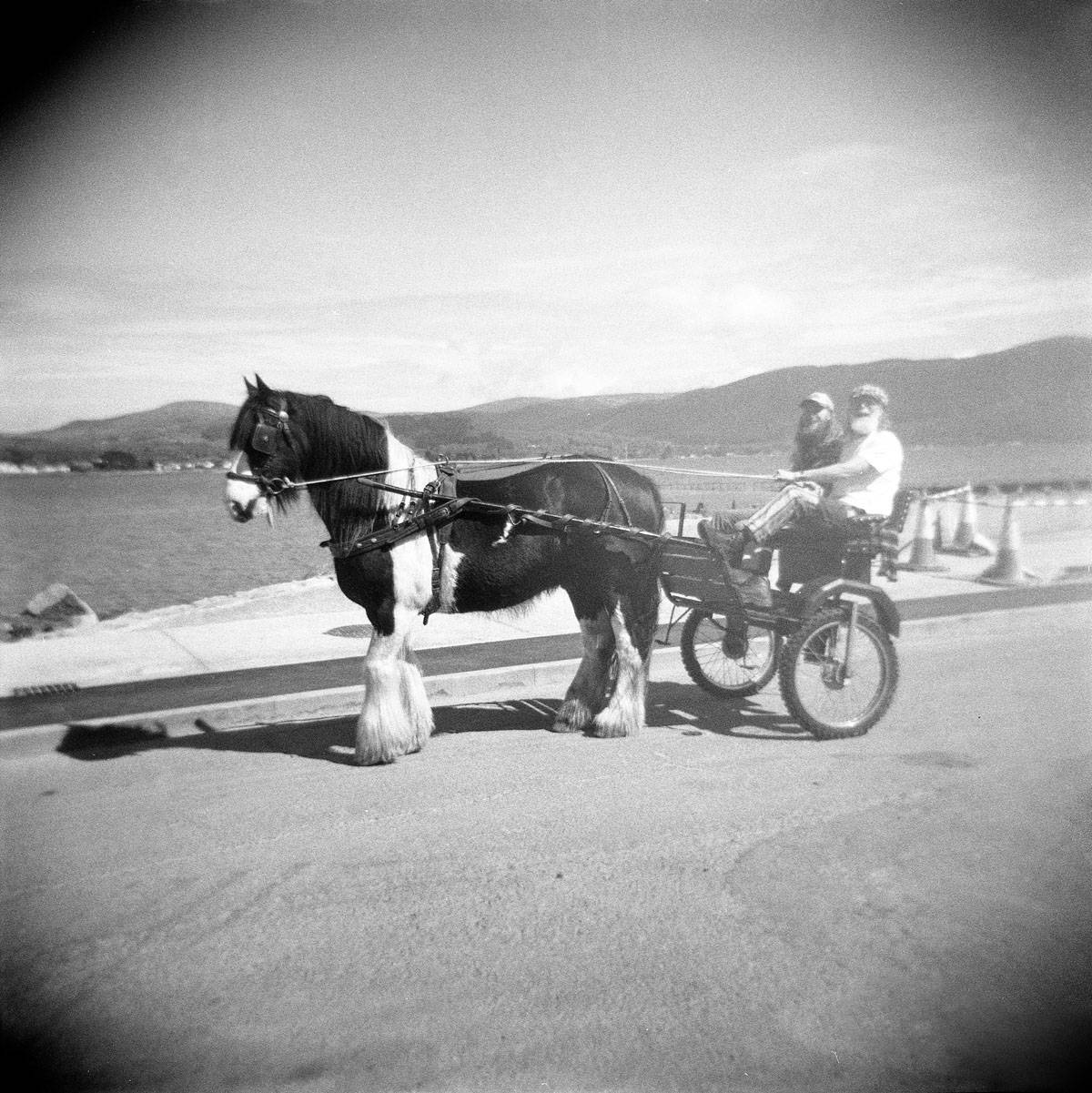
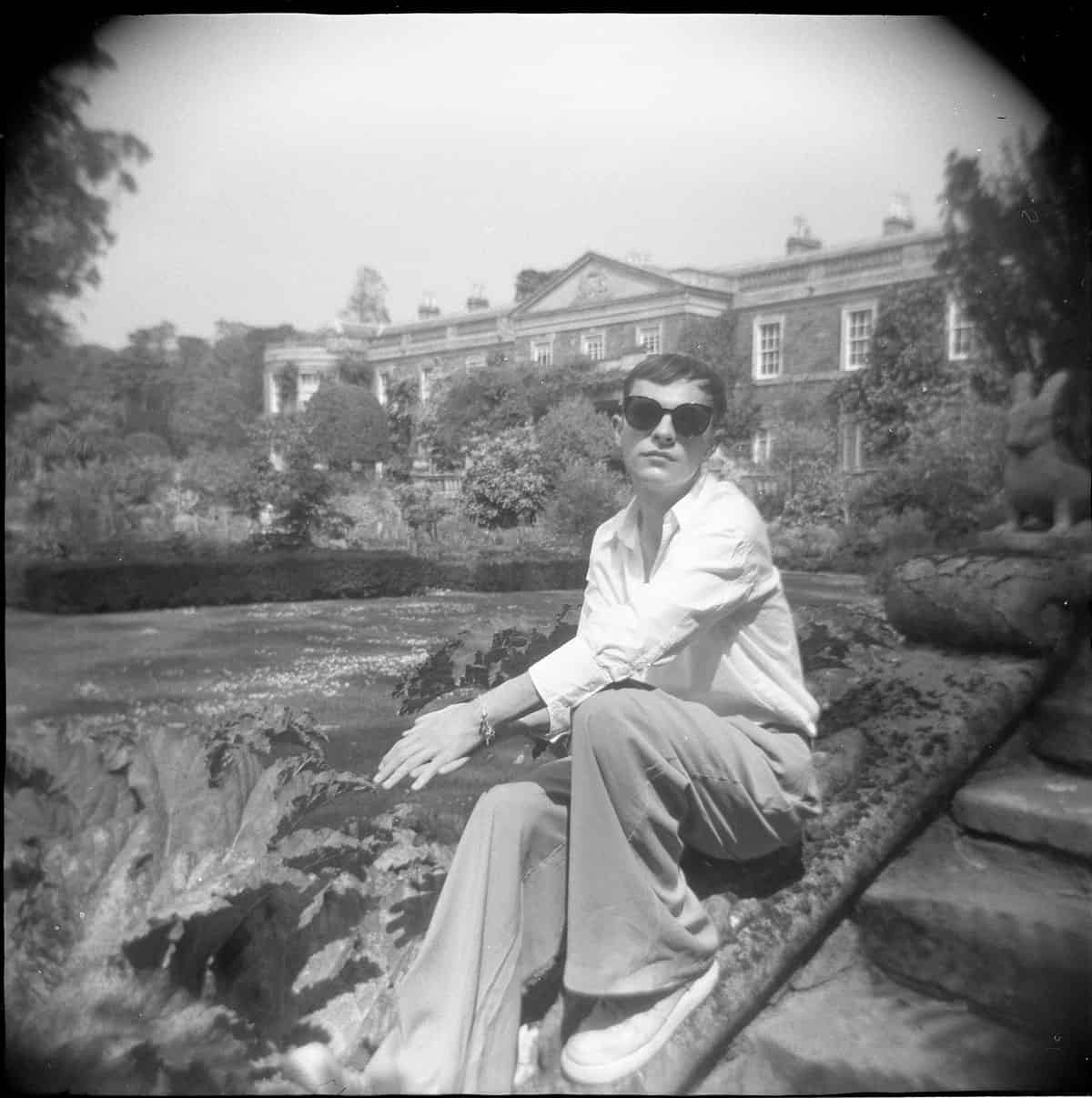
Side-by-Side Portrait
Here’s one I did manage to take myself. My brother-in-law taken with the Holga Glass and Plastic lenses, and I tend to agree with Alistair here on the sharpness in the center.
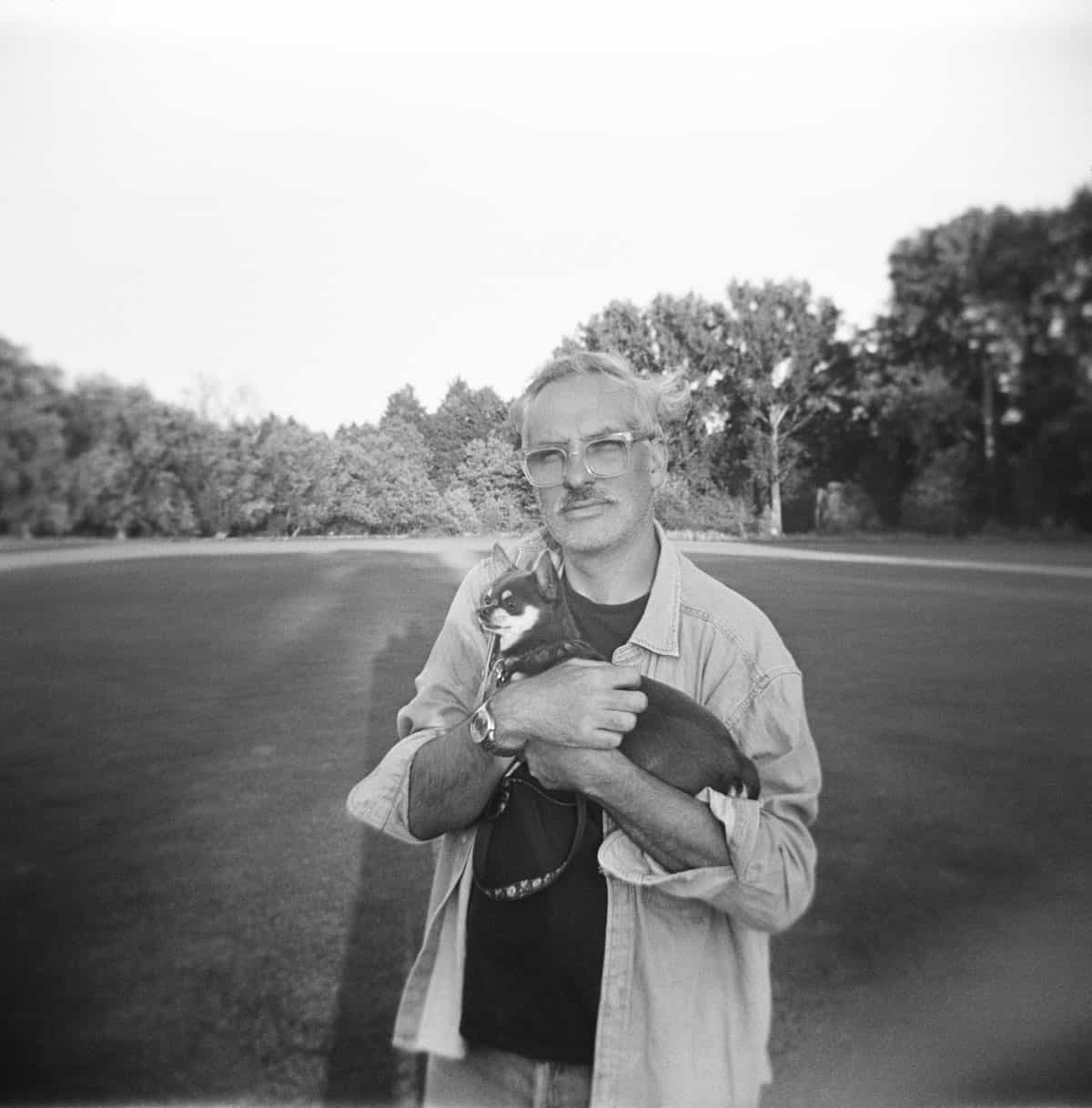
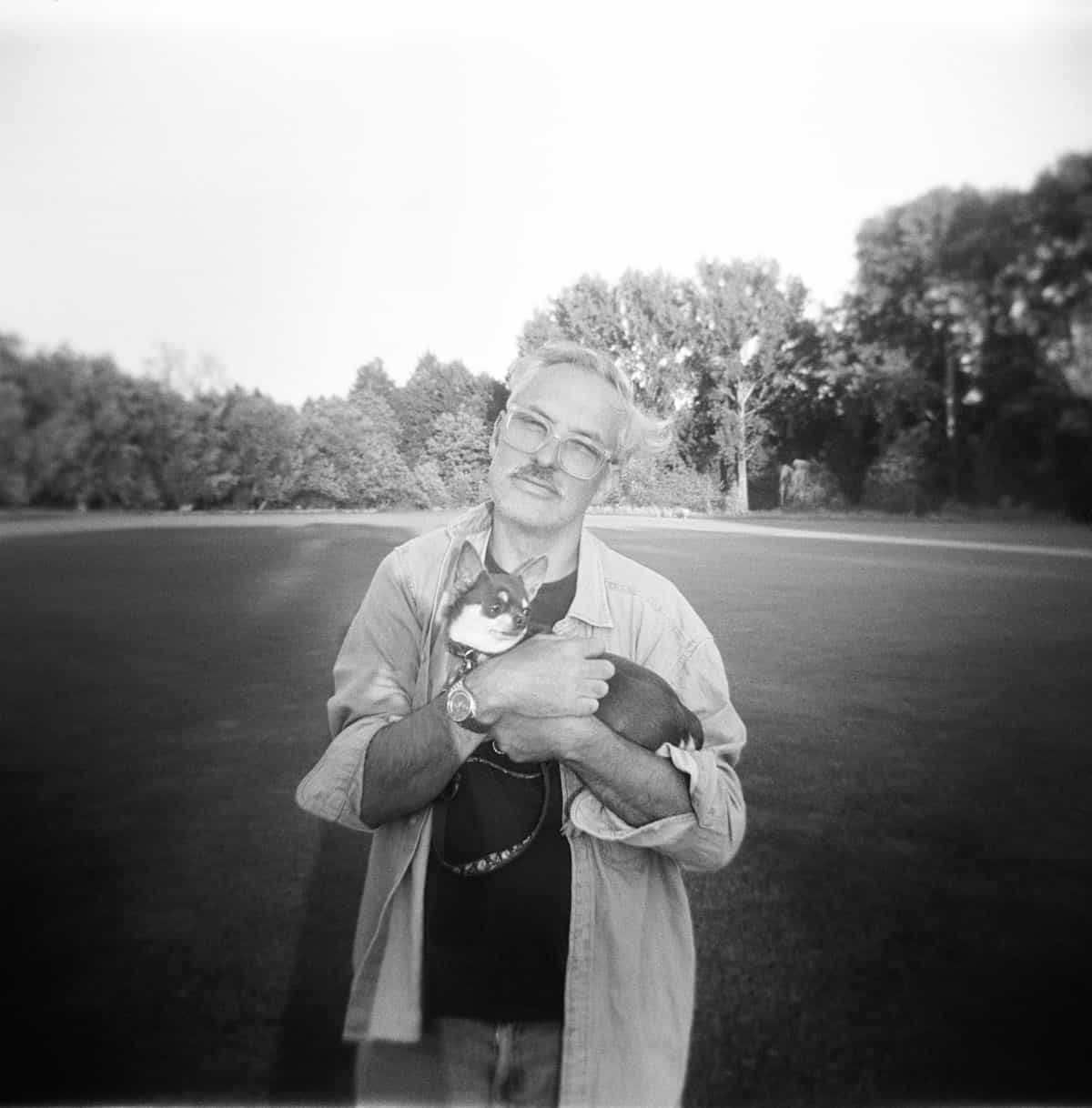
The Main Benefit of the Plastic Holga Lens
There is one significant benefit with the plastic lens in that it can shoot closer than the glass one: 600cm as opposed to 900cm (2ft to 3ft).
The problem I find is actually nailing that focus at 600cm, but here’s one I where I managed to hit focus, if not center myself:

Other Lenses to Try with the Holga
There are three other “lenses” for a Holga – ones that you attach to the front of your regular glass or plastic lens. These three are: the HW-05 Wide Angle lens (find on eBay), the HT-25 Tele lens (find on eBay), and the FEL-120 Fisheye lens (find on eBay).
I tested the Tele and Wide Angle lenses. The Tele lens claims to magnify the shot you can take with you Holga by 2.5 times. I realize I have a FEL-135 – a fish-eye lens for the 135 Holga cameras. This meant that the images were all far too blurry. I’ll report back on the FEL-120 when I’ve got one.
The Holga Wide Angle Lens
The problem with all three lenses for me is the vignetting. You may like vignetting on a Holga – after all it’s one of its USPs. But I prefer it to be minimal. I guess you can always crop.
But the lens is wide for the Wide Angle, and it gives you so much more of your scene. You can see our local fish and chip shop van (The Codfather) here. The wide-angle even includes the back of the car, whose shadow you can see on the normal lenses:
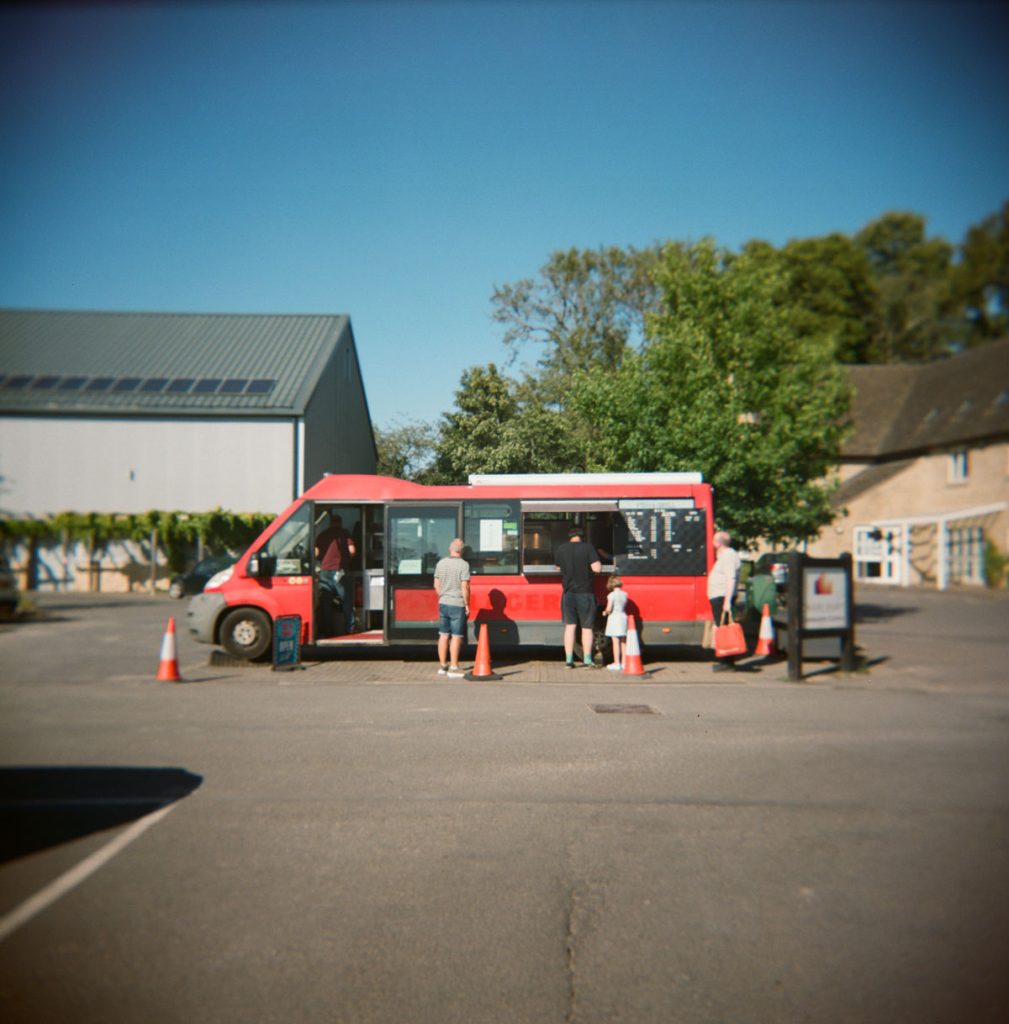
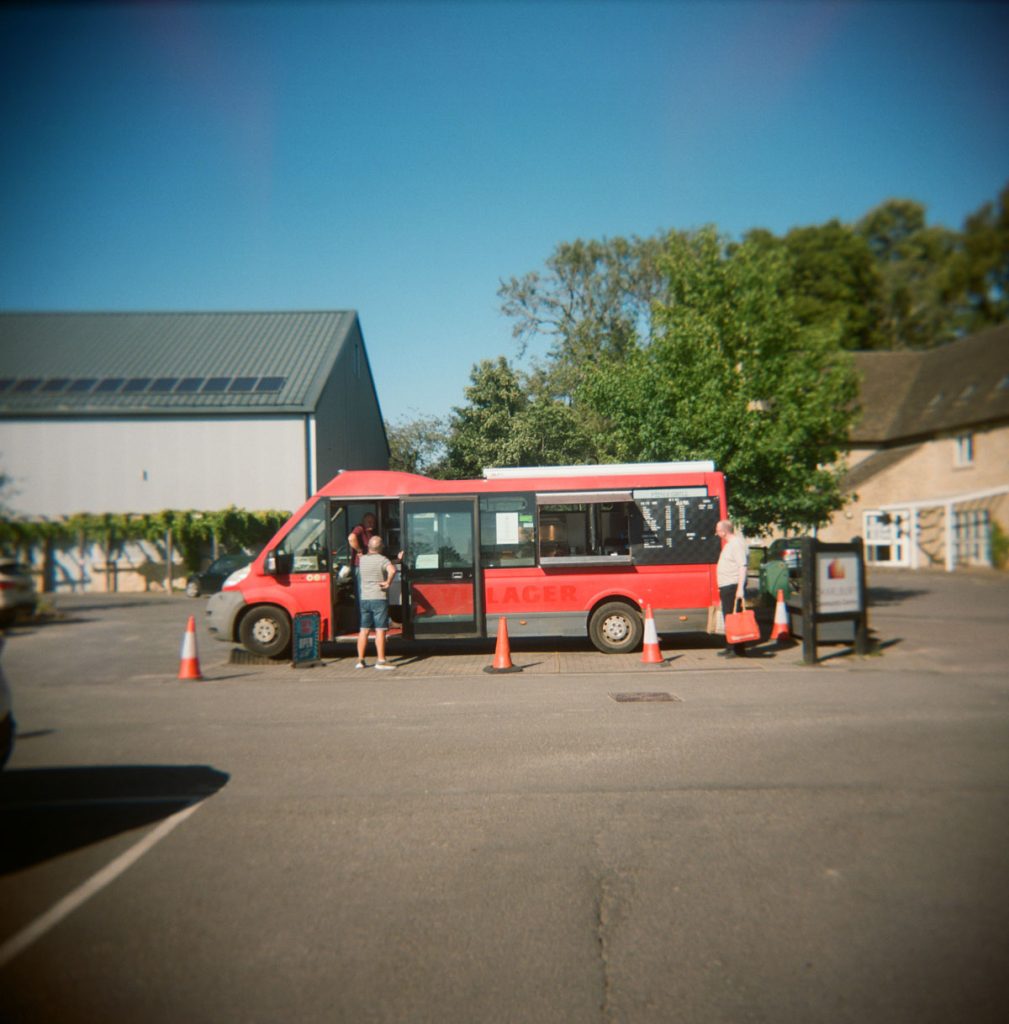
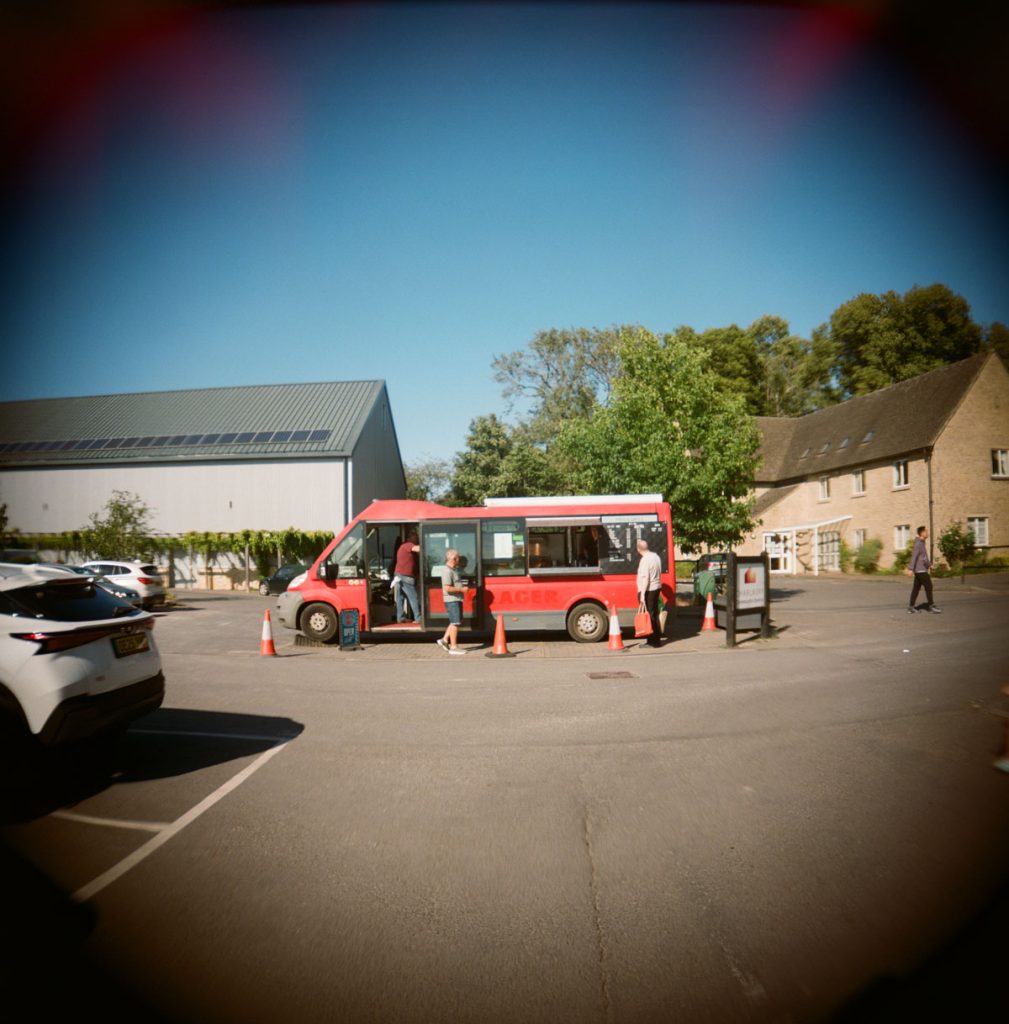
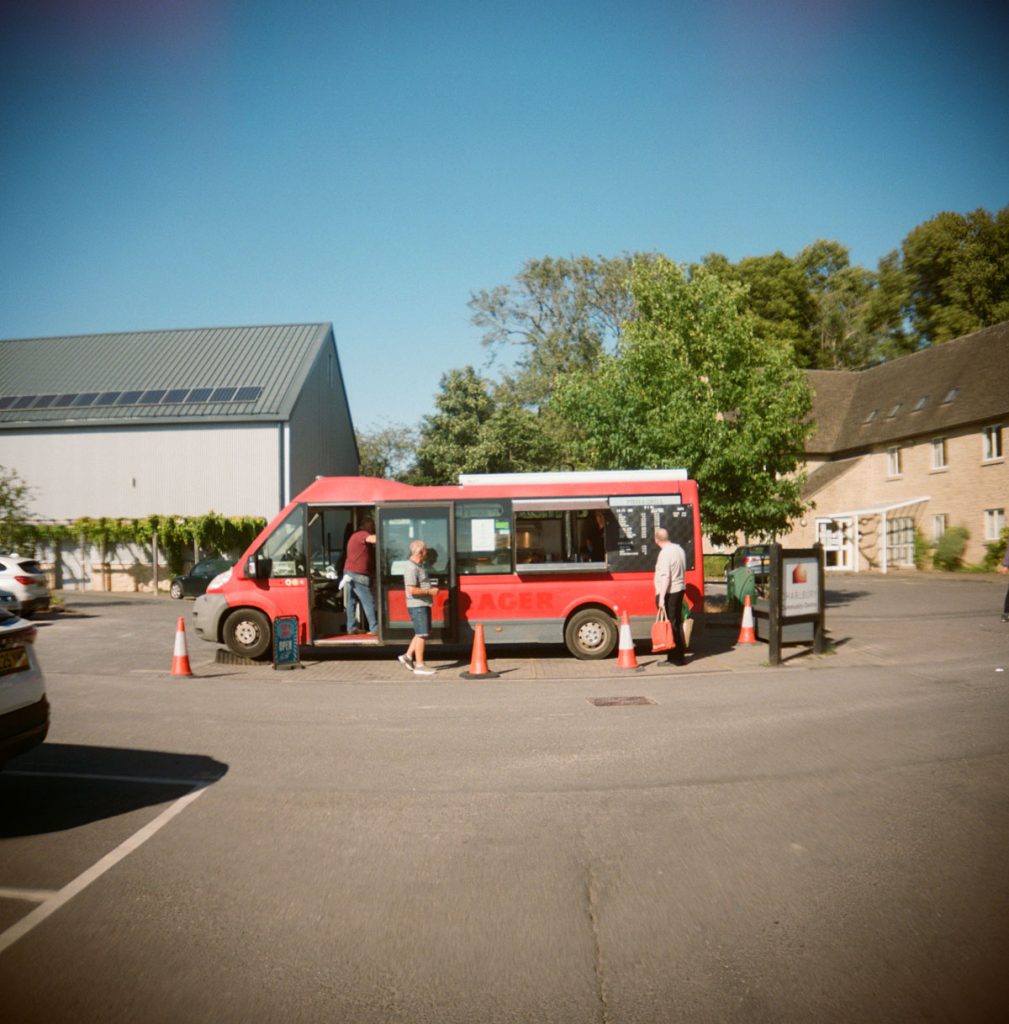
The Holga Tele Lens
That vignetting is even more apparent with the tele lens, and it has blurred out most of the wording and people!
Again, if you like that kind of thing, then all good. And I guess that there maybe some creativity to be had in that circular vignette, particularly in black and white.
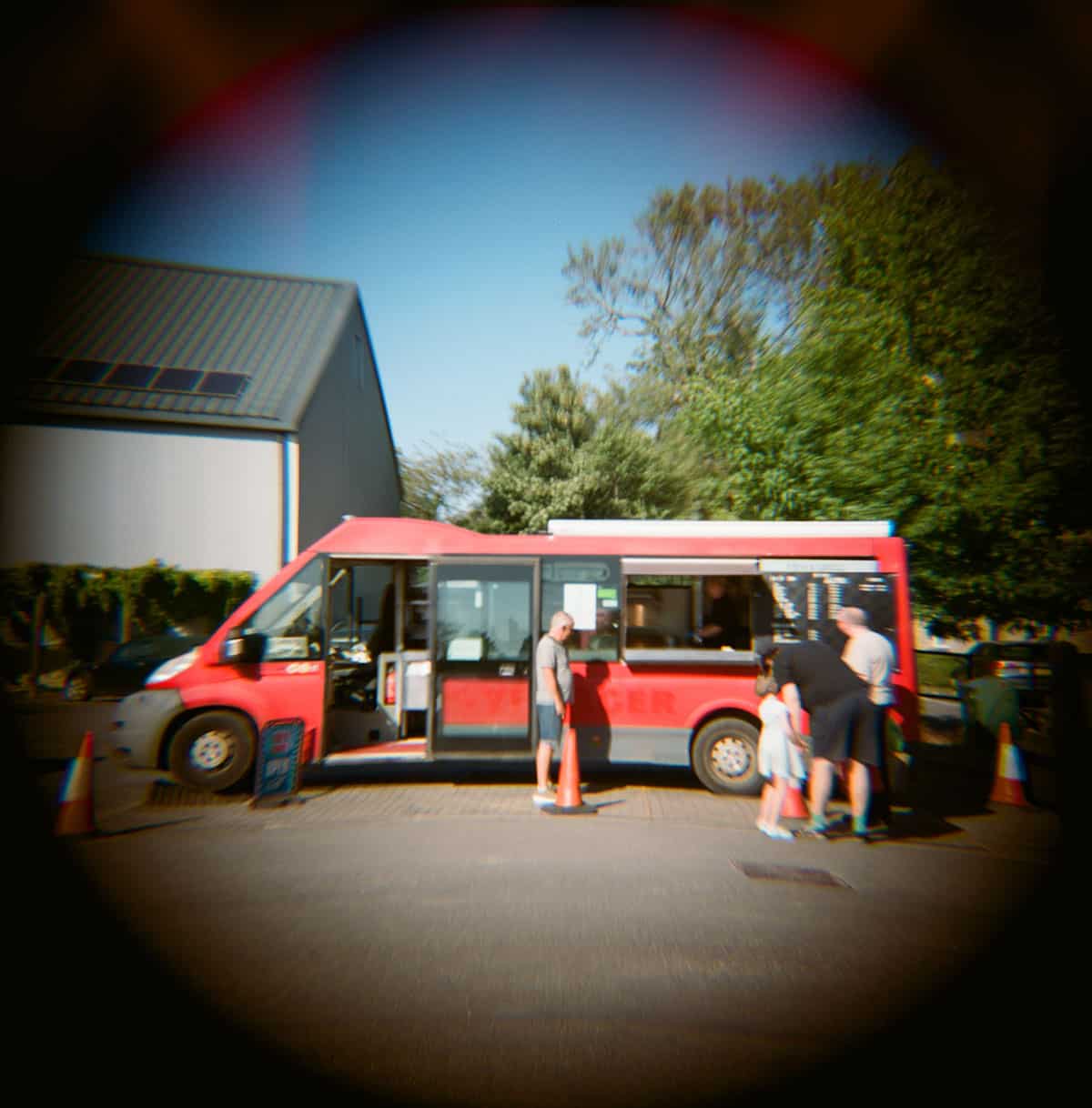
Comparing the Holga Glass, Plastic, Wide Angle, & Telephoto Lenses
The 2x lens is very blurry around the center of the image which kind of reverses what you would expect from a Holga!
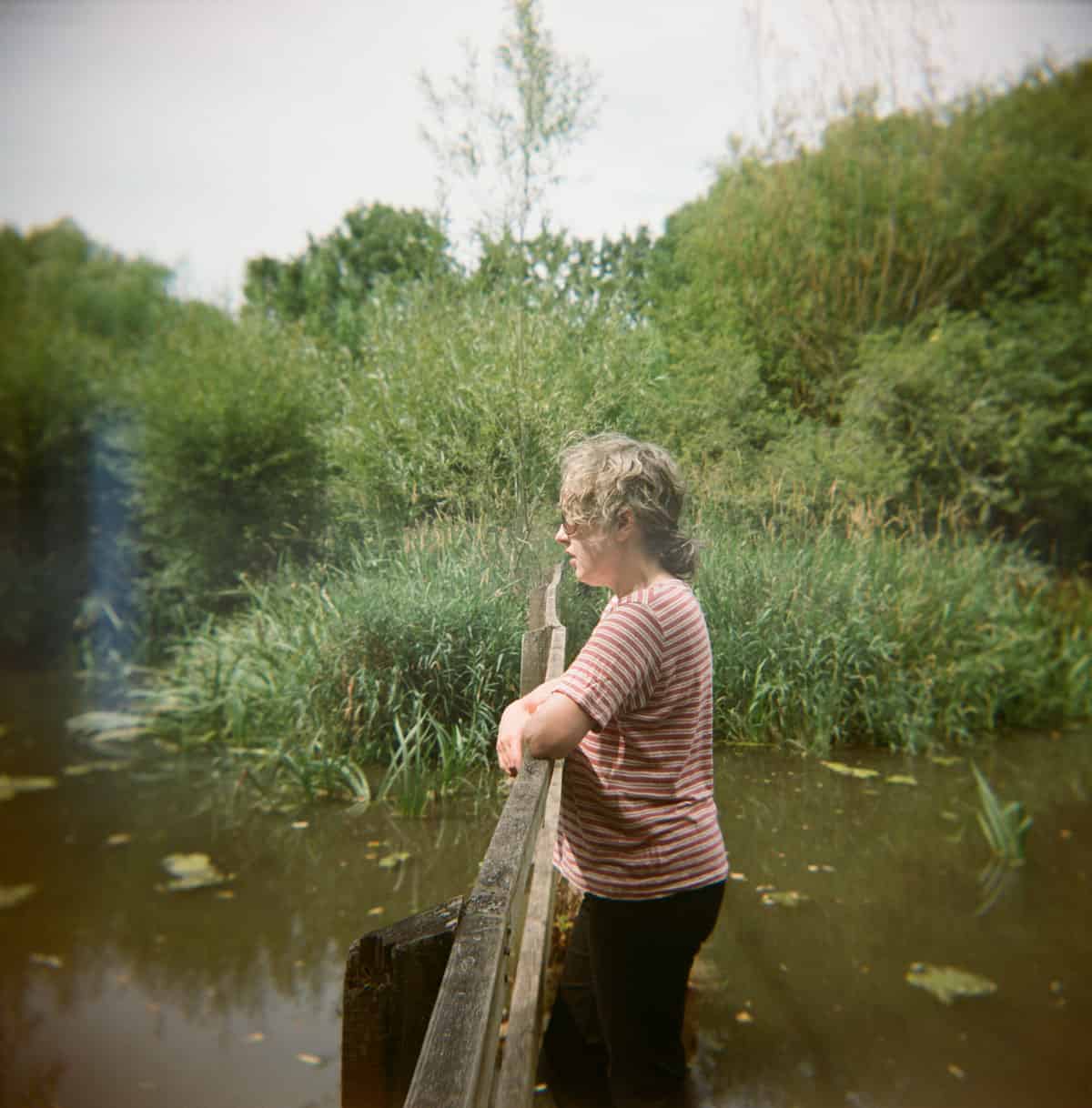
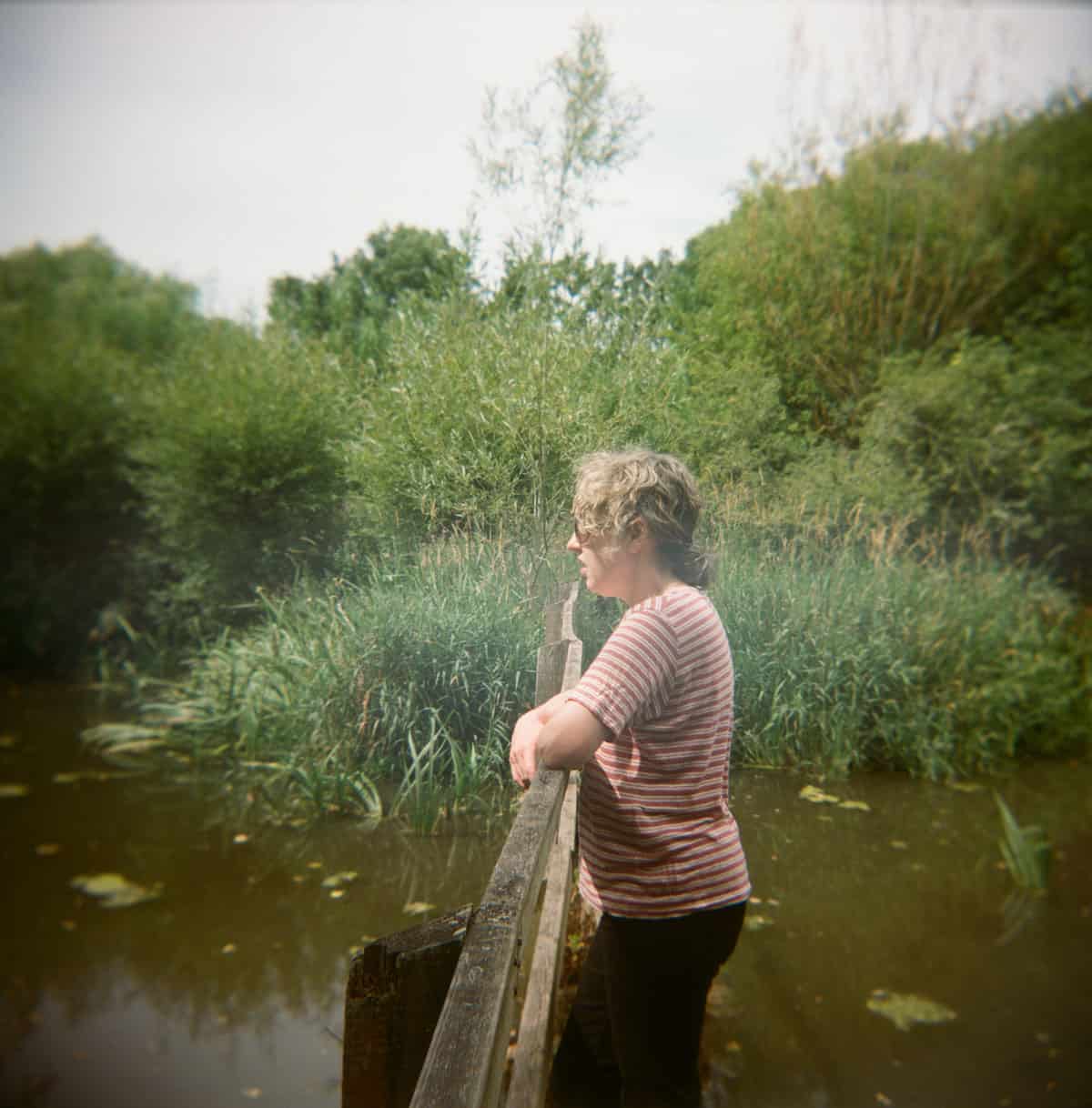
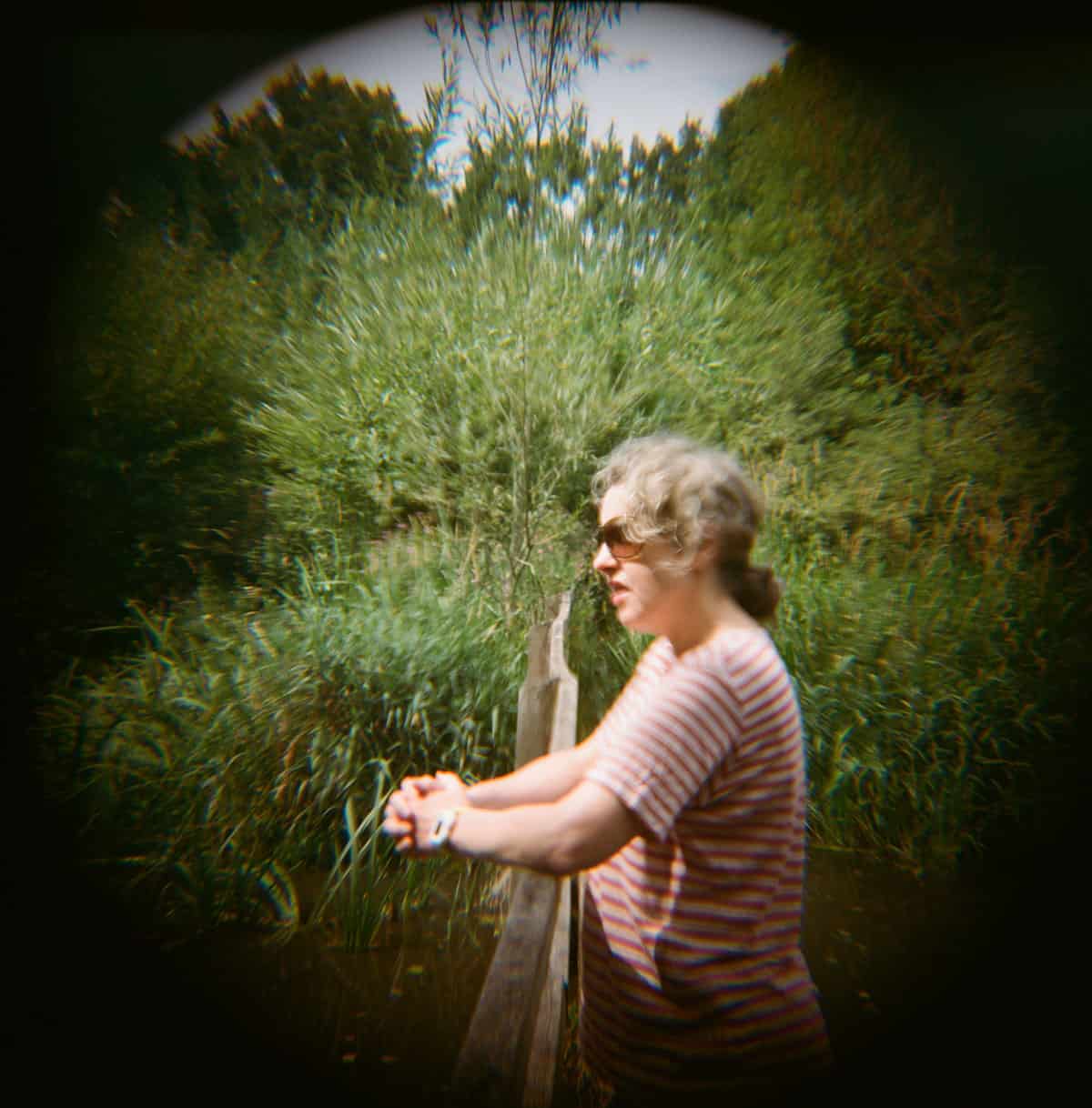
The wide angle lens is really impressive here in the picture of the street, I think. It gives so much more of a view. The 2.5 x Tele blurs again and adds more of that circular vignette!
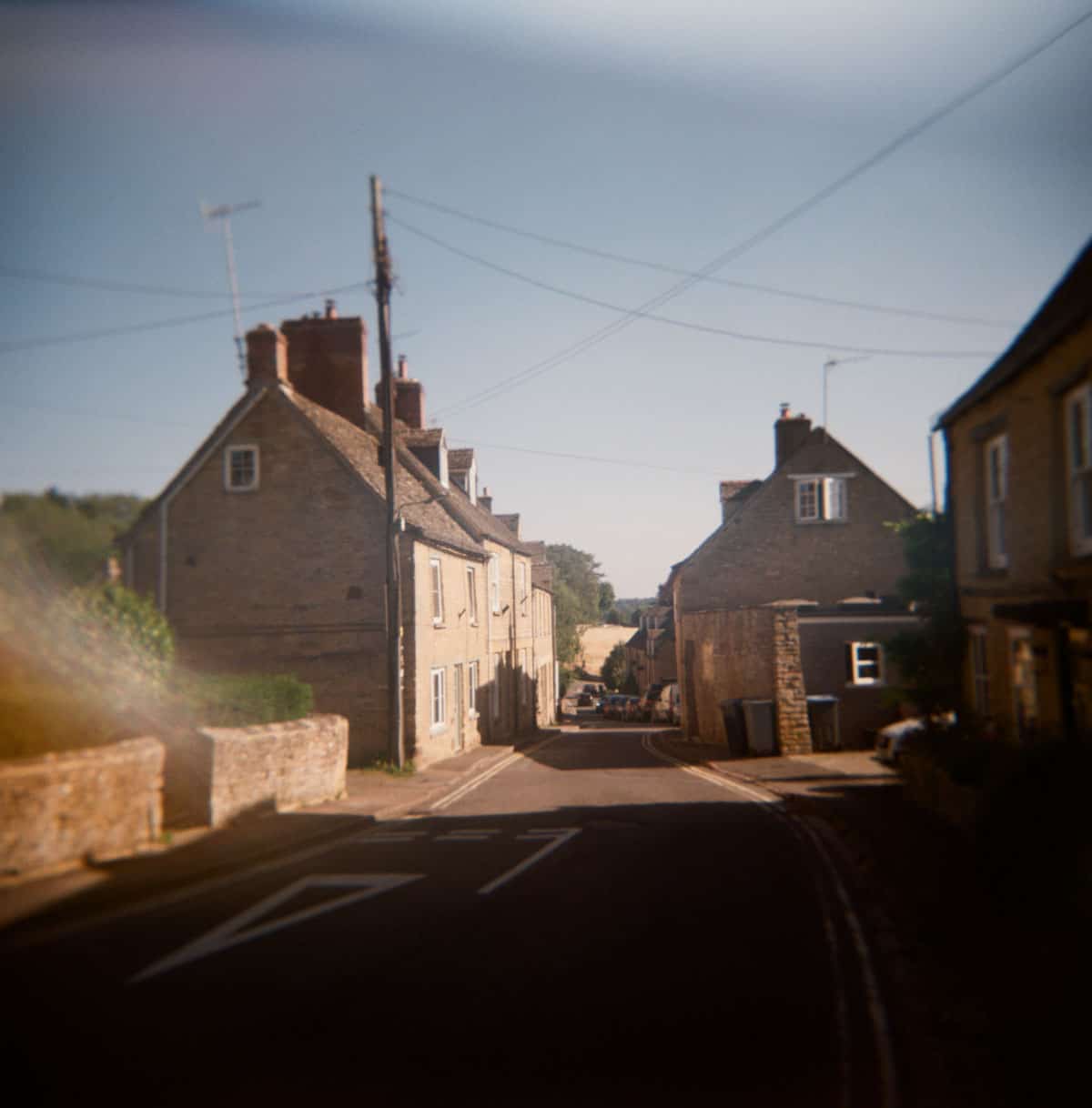
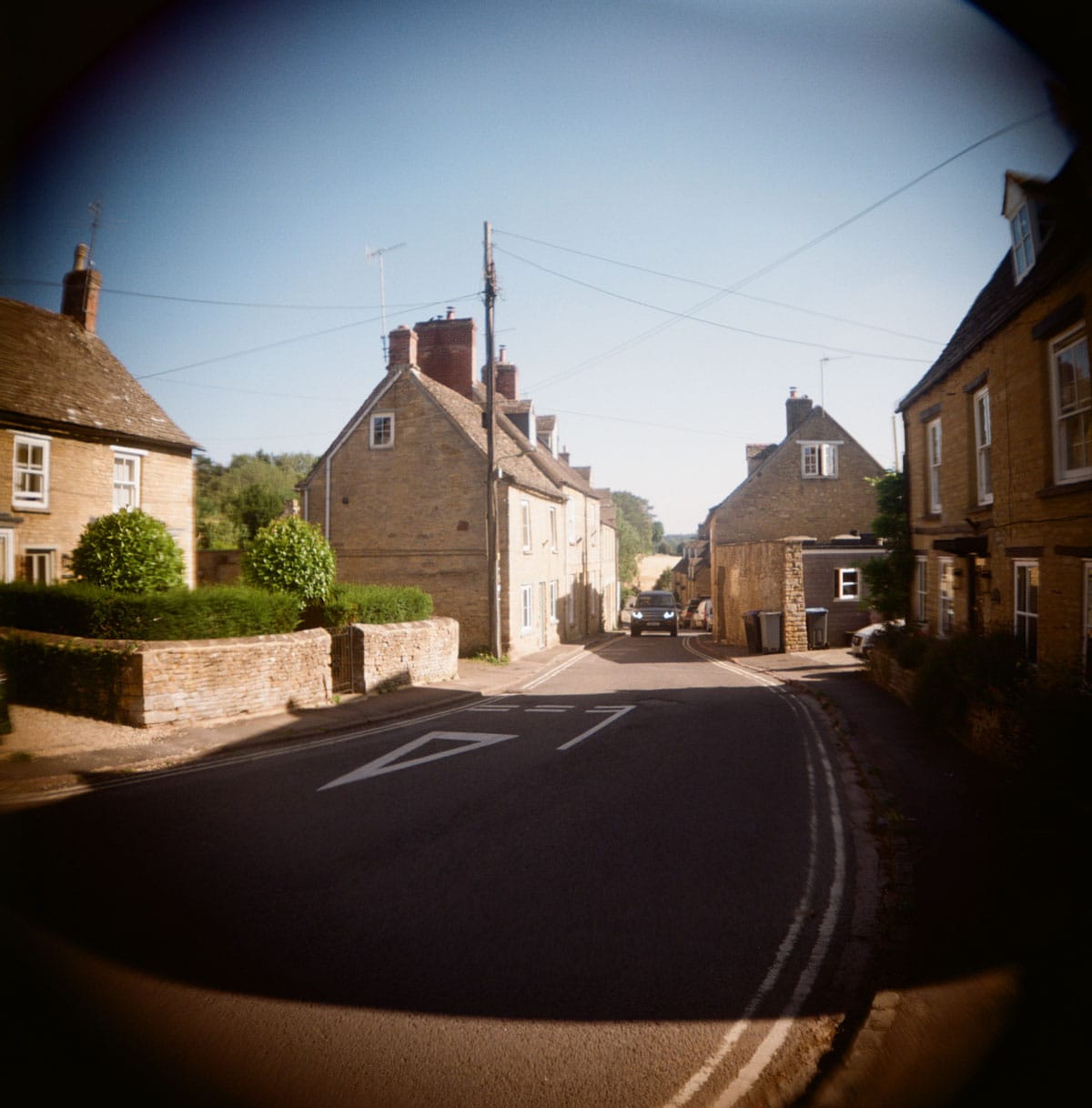
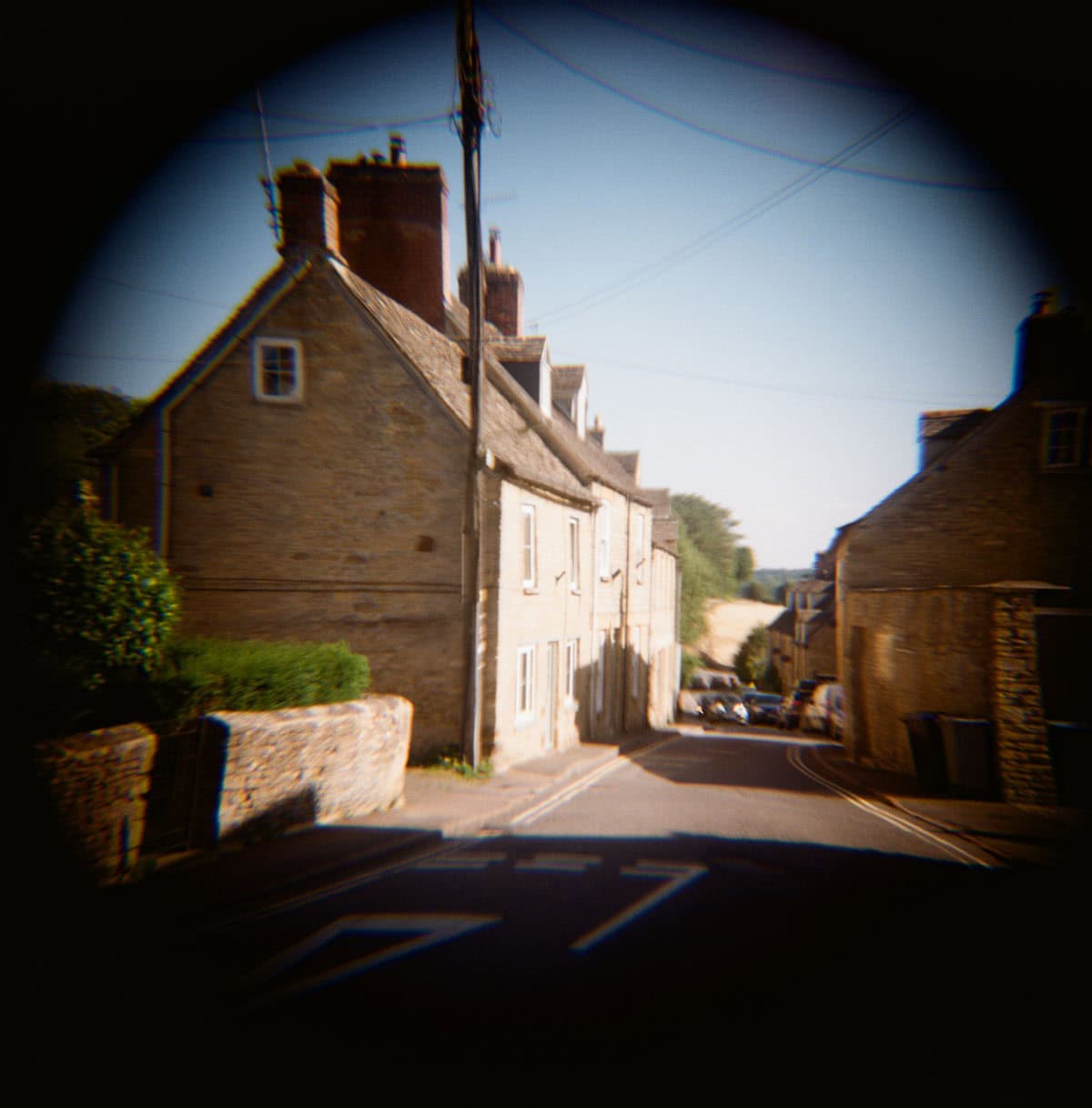
Here with a close shot, the Wide Angle also wins but the 2.5 x Tele does seem to have some areas of focus (although not the center!) and some charm (despite the fact that I found it more difficult to scan and match the colors!).
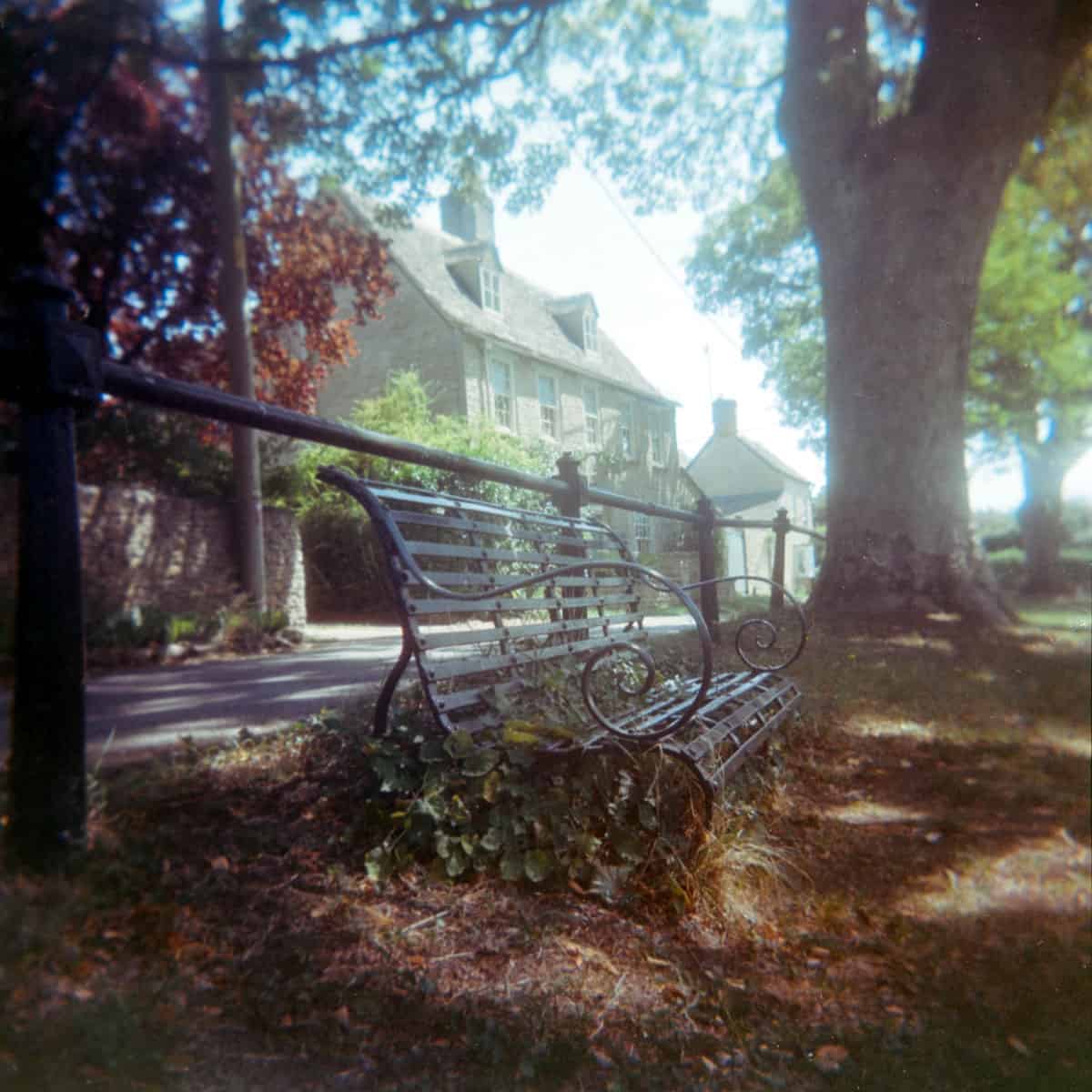
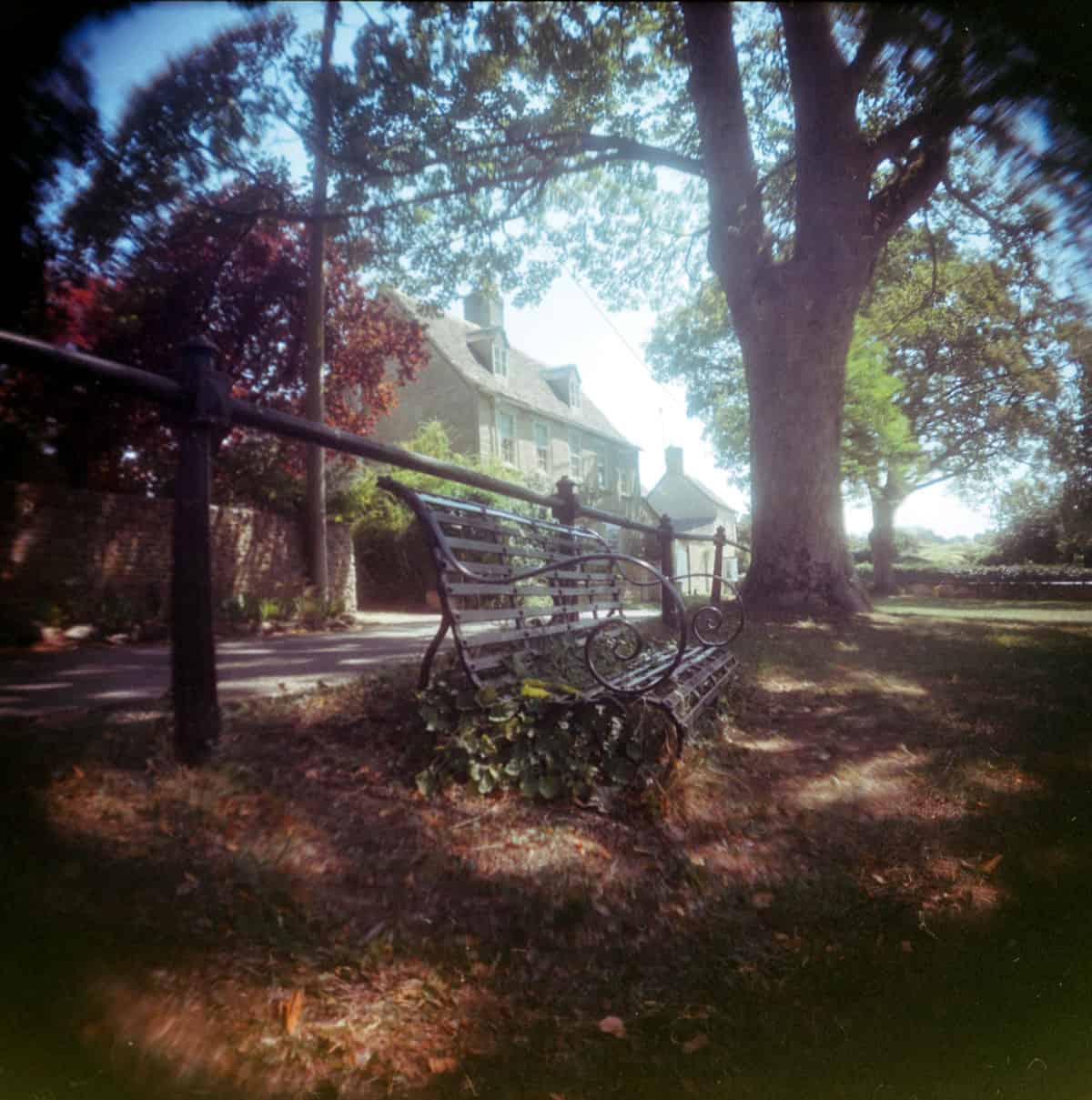
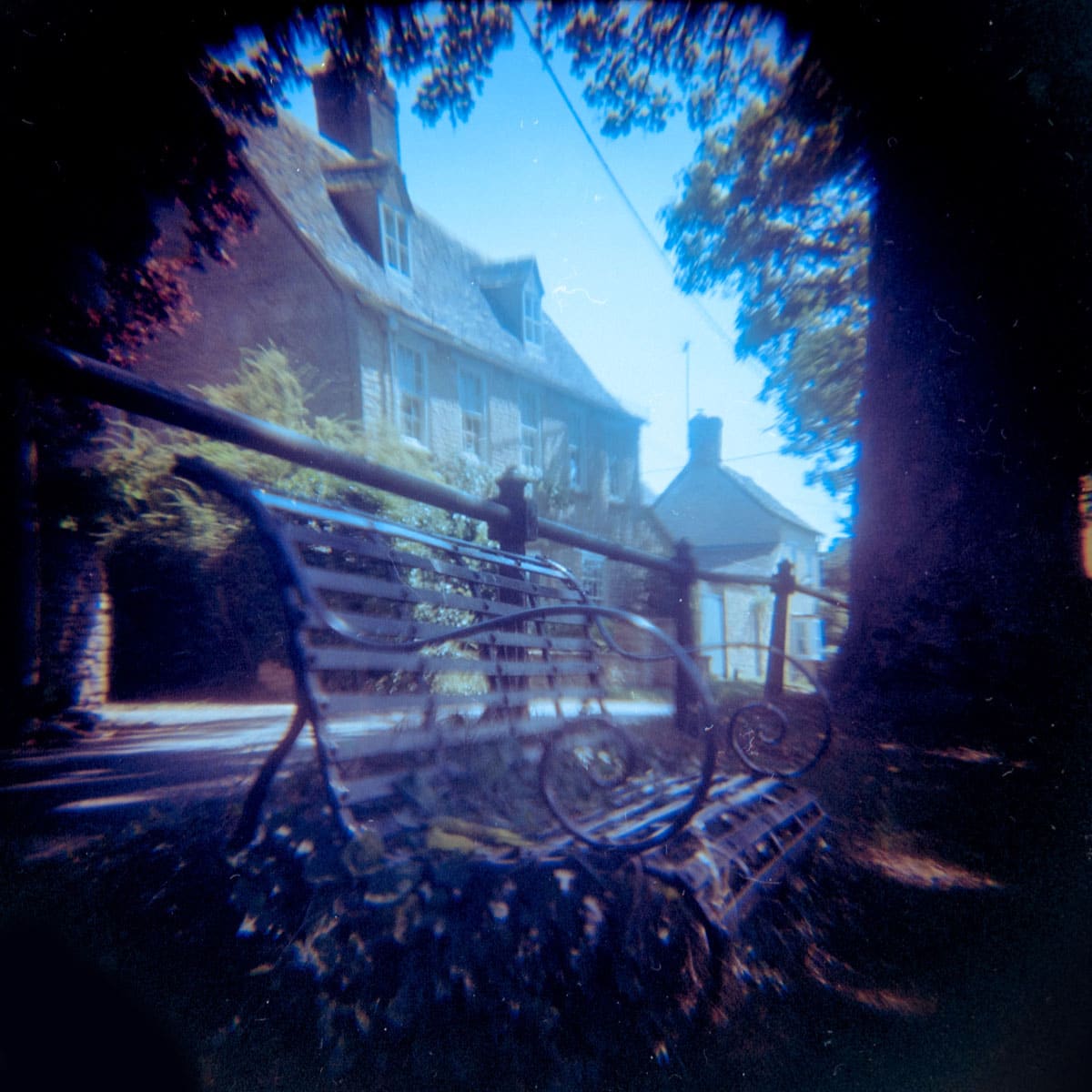
I did some more tests, and the wide angle to me is worth purchasing/finding on eBay if you can.
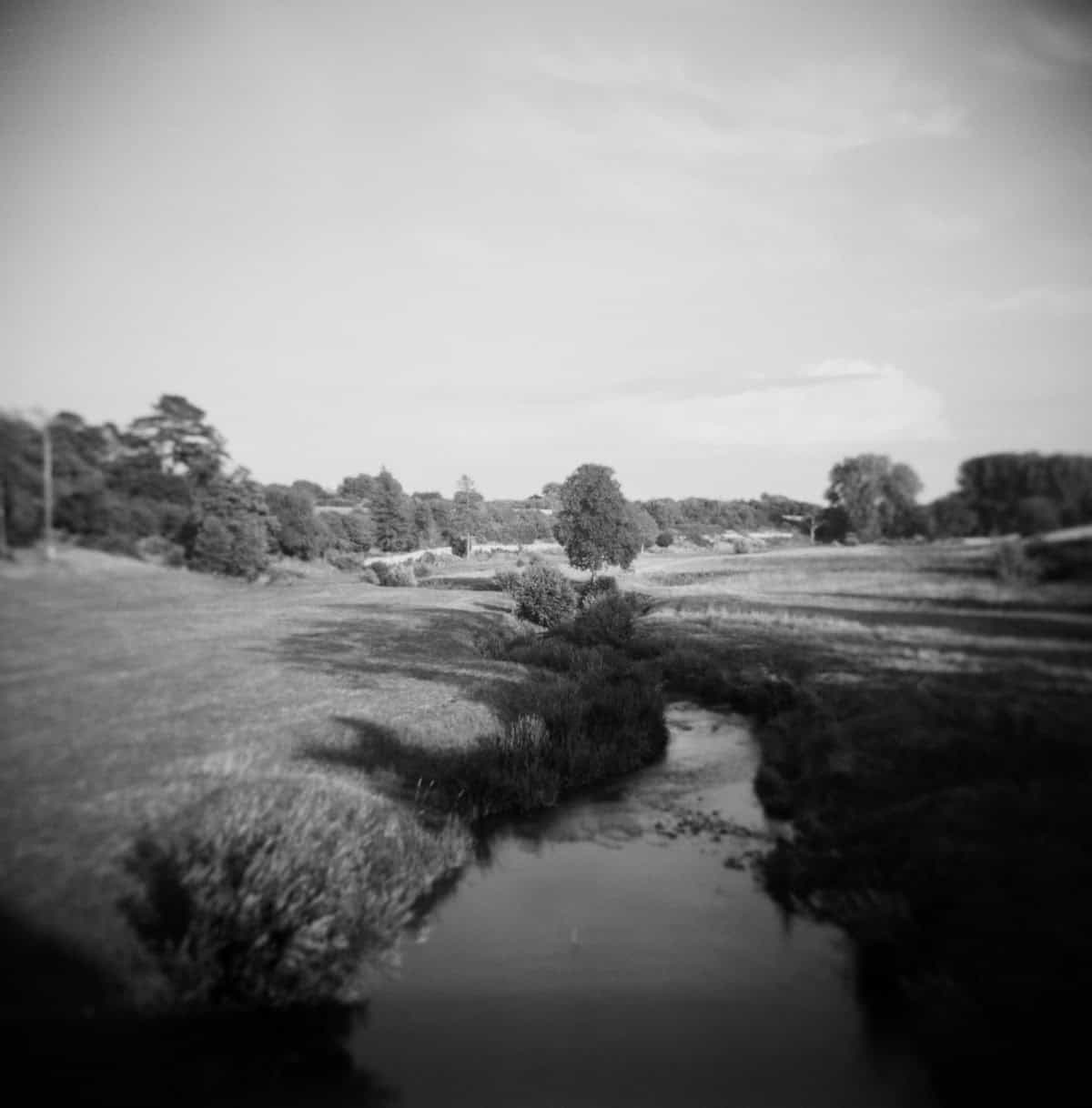
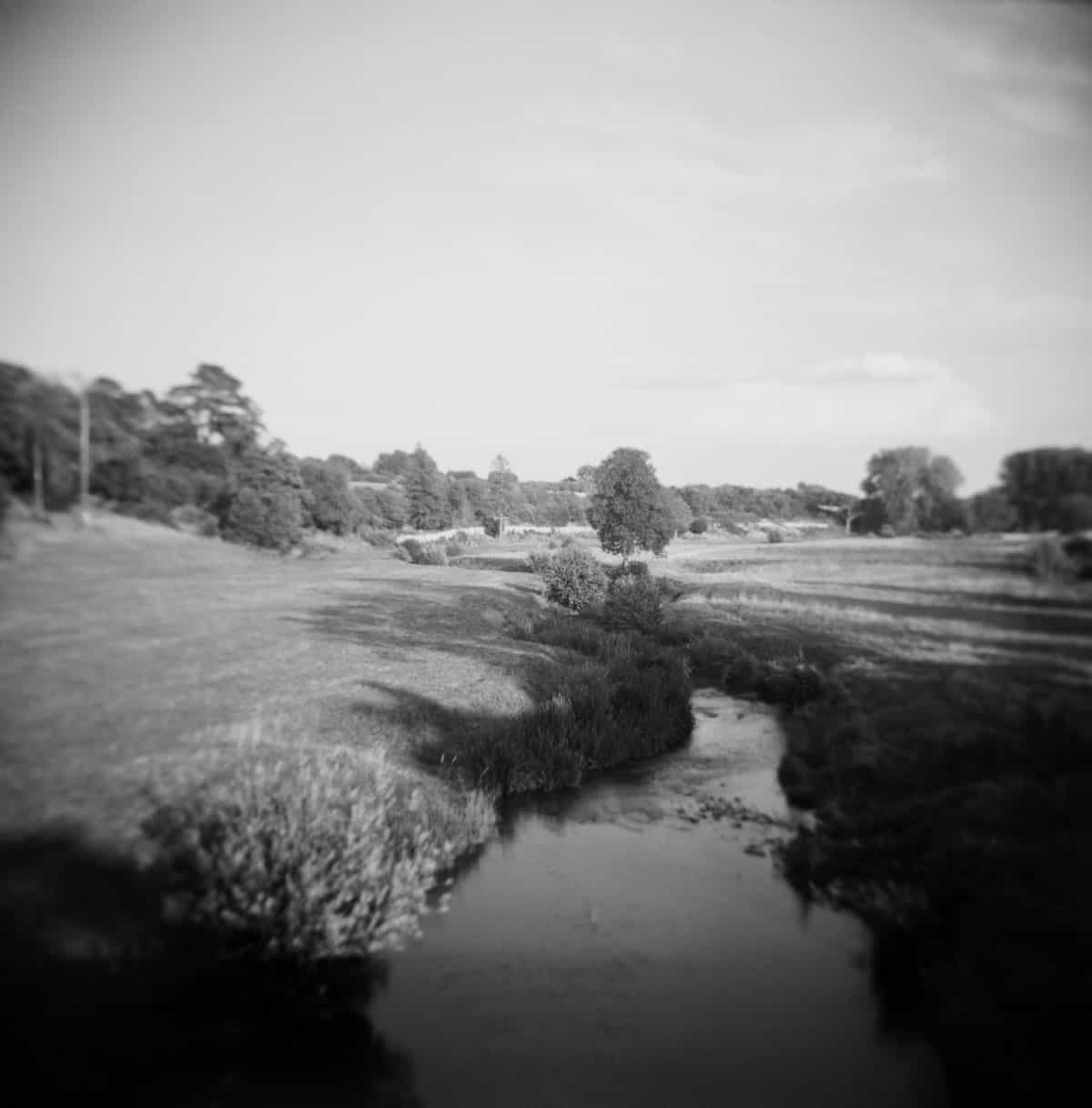
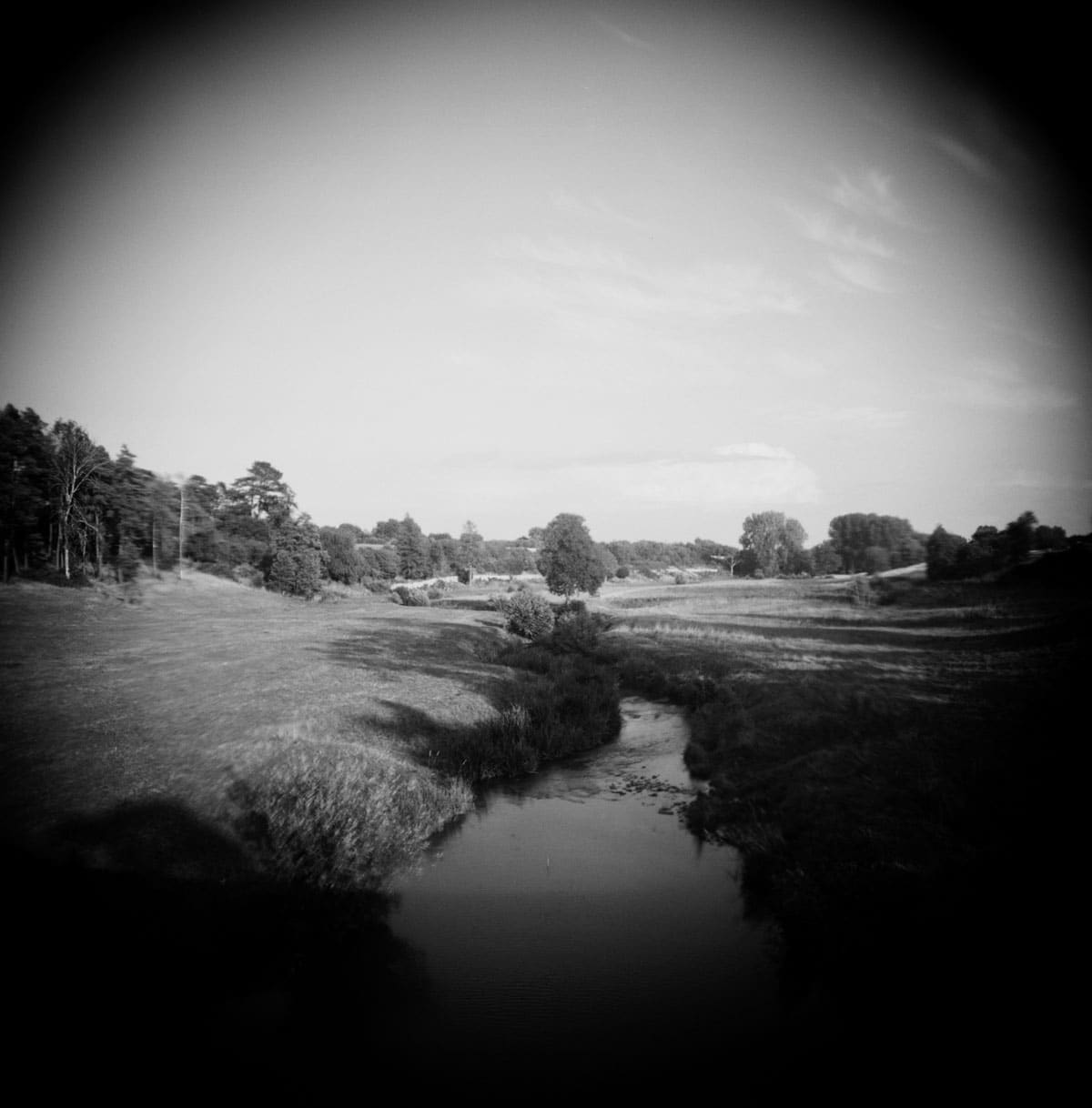
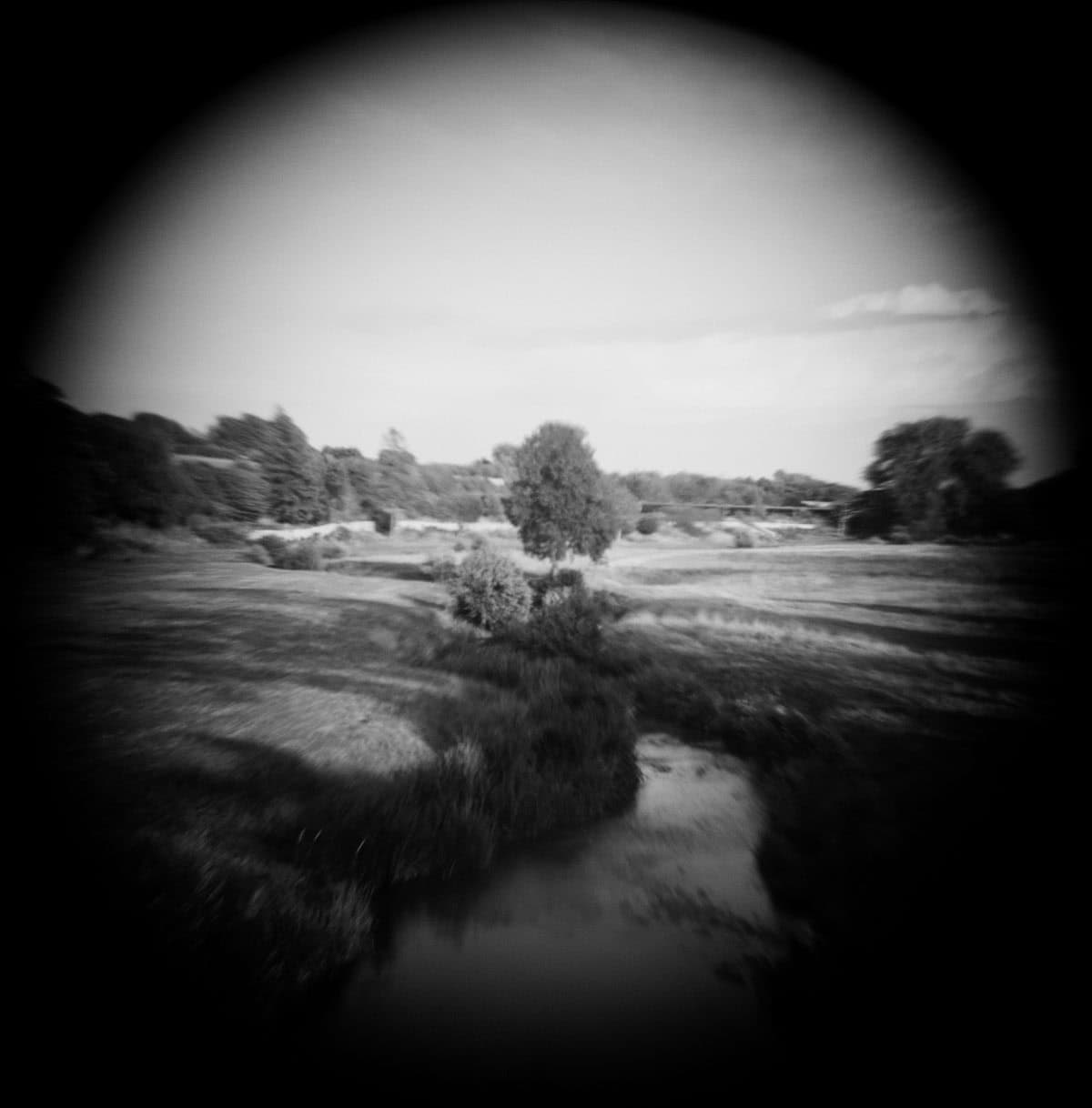

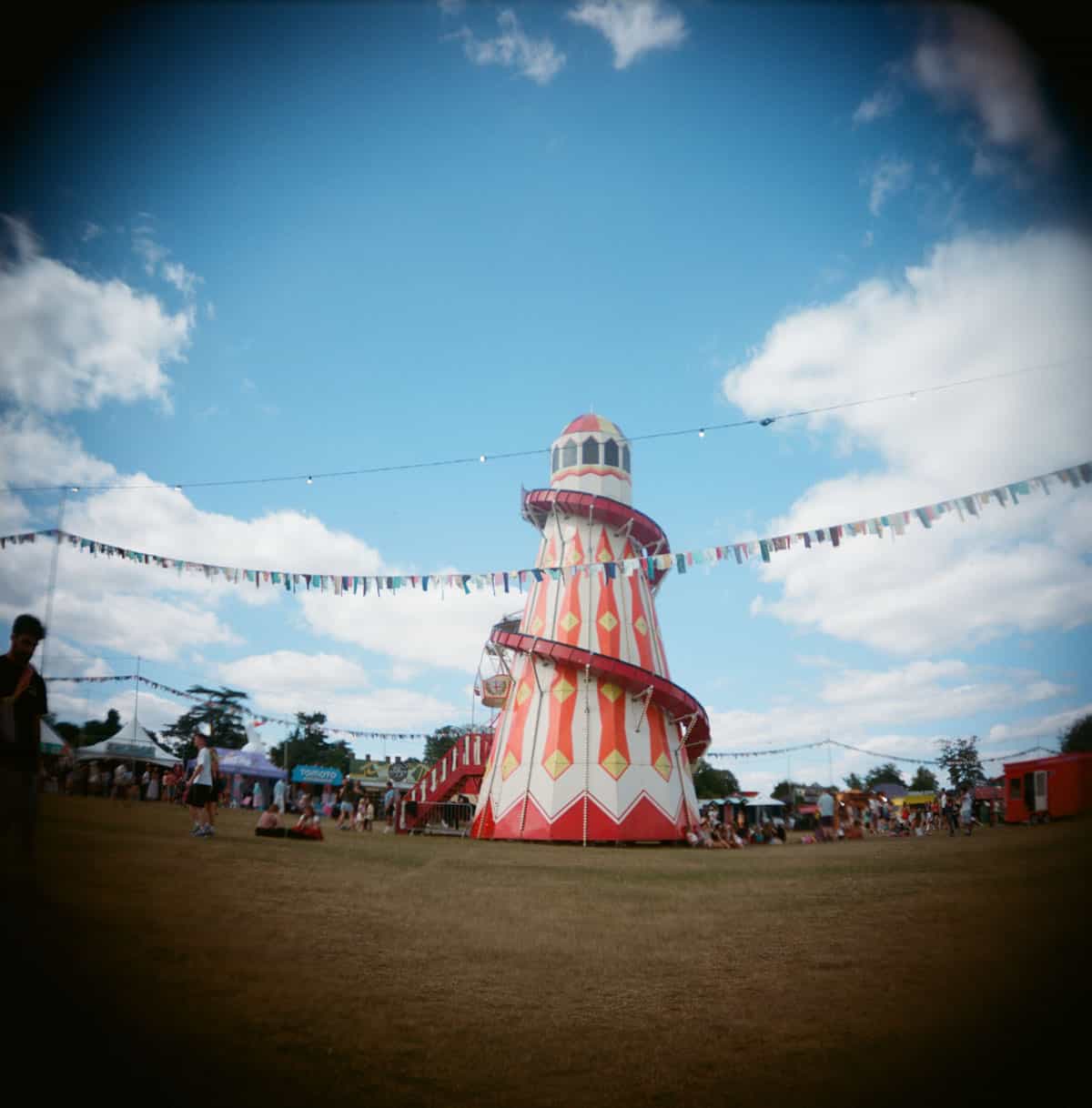
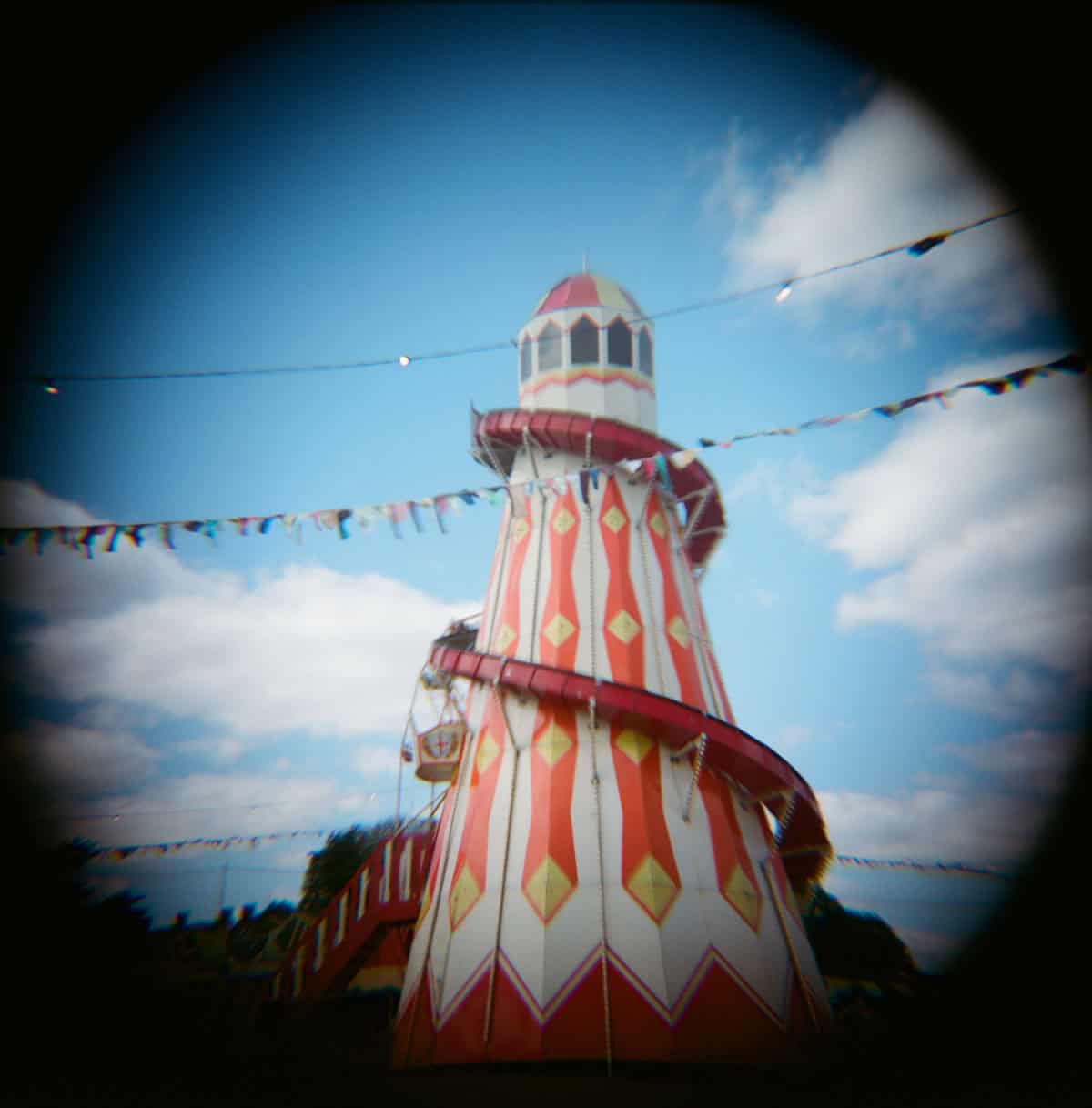
Conclusion
I hope you’ve enjoyed this article – I do think there are differences in the plastic and glass lenses, even if they are minimal. Hopefully, this article has given you some thinking about whether or not to buy a Glass-lensed Holga or a plastic lensed Holga.
As regards the two add-on lenses, I really think the wide angle lens (find on eBay) is worth it even if the 2.5x Tele lens doesn’t really do it for me.

Thank you so much, Alec! Alec is a regular contributor here at Shoot It With Film, and be sure to check out his other articles, like Petzval 80.5mm f/1.9 MKII Bokeh Control Art Lens Review: It’s All About the Swirl and Tips for Shooting Street Photography with B&W Film.
You can also check out more of his work on Instagram.
Leave your questions about the glass and plastic lenses for the Holga below in the comments, and you can pick up a Holga 120 for yourself on Amazon here.
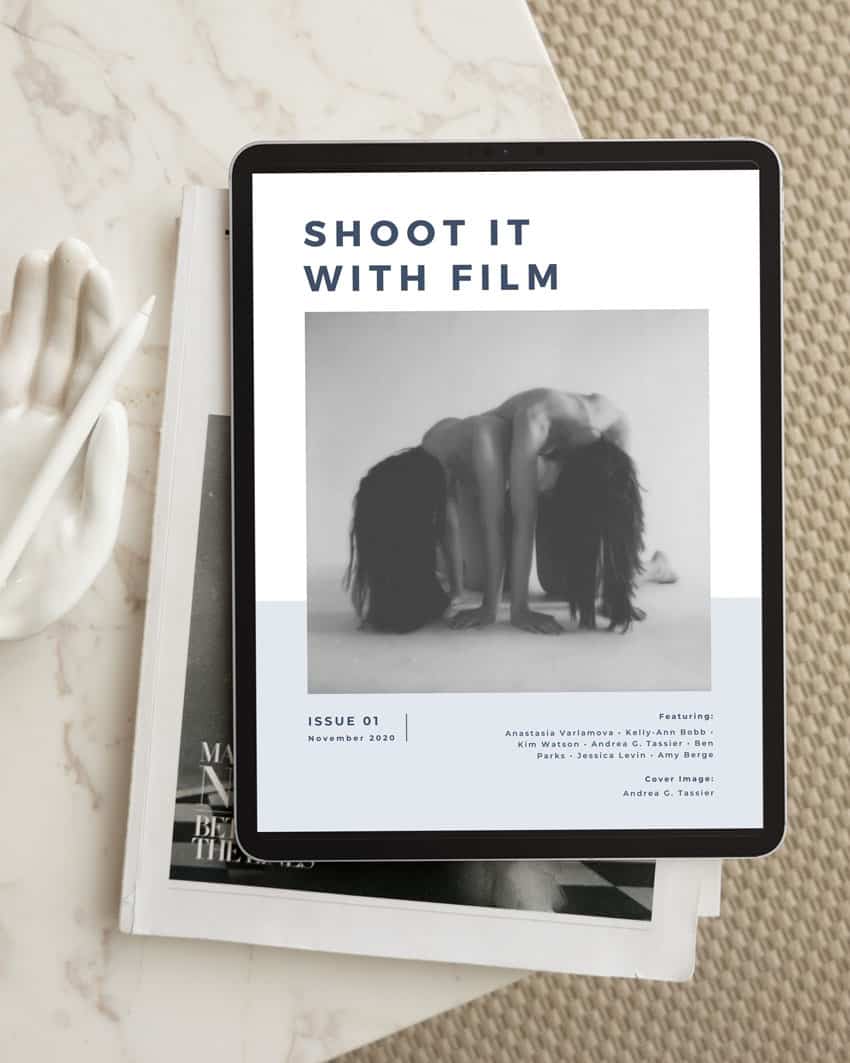


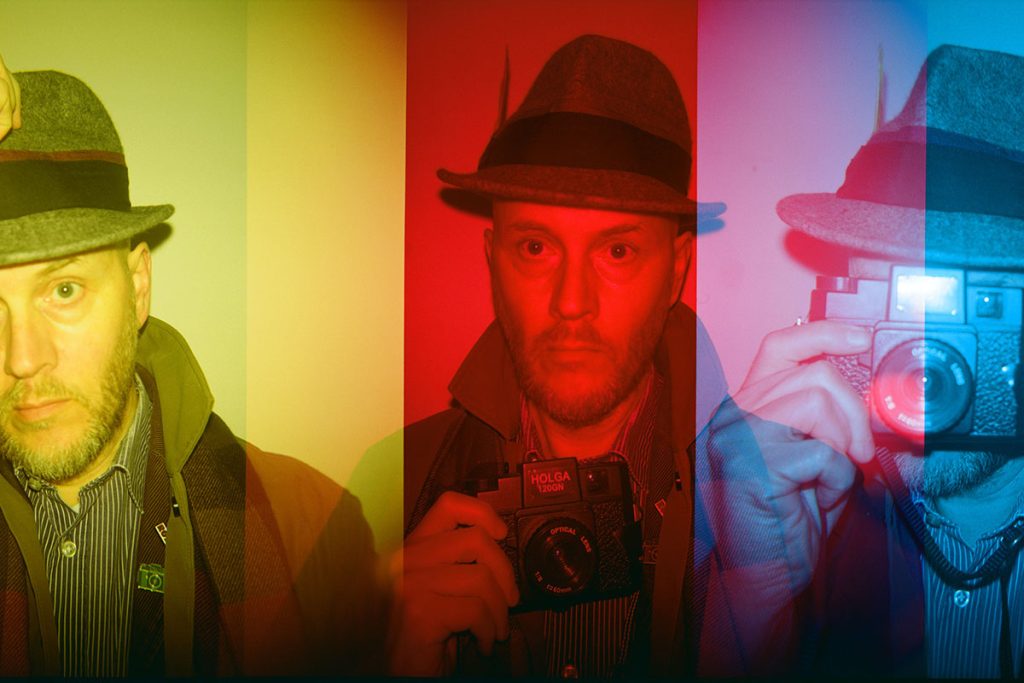
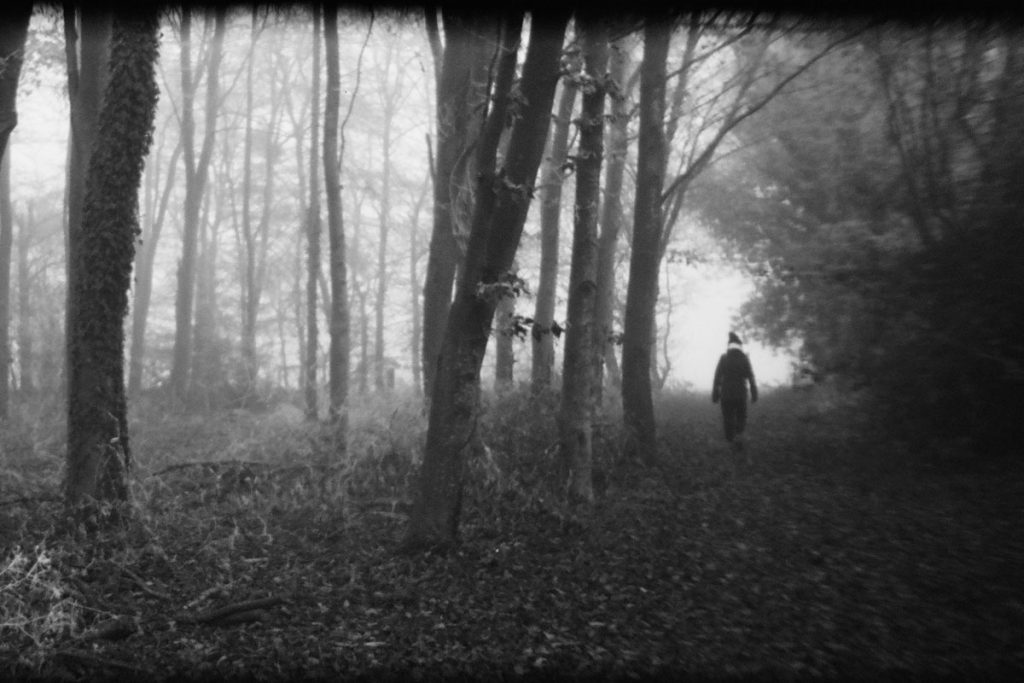
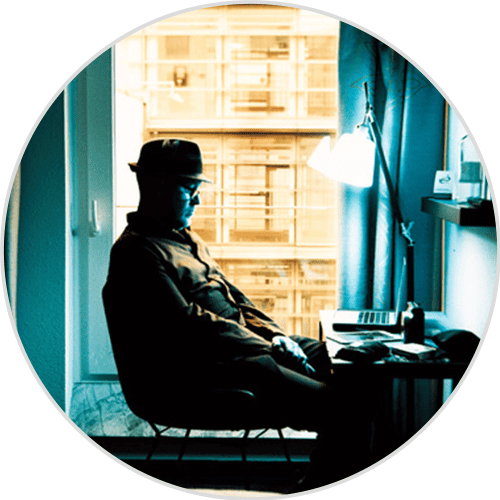


Blog Comments
Taylor Blanchard
August 22, 2025 at 12:04 pm
Interesting article, Alec! I love to see the comparisons. It’s great to see it laid out so clearly so I’ll know the next time I load up one of my Holgas. Also loved reading about those add on lenses.
Kelly
August 22, 2025 at 7:11 pm
I enjoyed this article very much! I haven’t sent off my first roll shot on my plastic lens yet, but you have me wanting to add a glass version now. You mention what color film you used, but what stock is the black and white? It’s a beautiful pairing with the Holga.
Margaret
August 22, 2025 at 11:37 pm
Thank you, Alec! Great article! Thank you for doing all the testing. All your conclusions check out with me — I agree with you on every point. I love my glass lens (thank you daily Holga special edition!) and my wide angle, which I got years and years ago and hold onto like a precious thing, since I never see one for sale anywhere. Cheers —
Ian
August 23, 2025 at 6:51 am
I like plastic. In my view the Holga and toy camera allure is a dreamy, soft image with blurred edges. To have a small part of the image with sharpness and contrast of a “normal” lens steers the viewer’s mind towards lens and camera issues, totally detaching one from the feel and mood of the photo. Blurriness should be a subtle thing, that the viewer doesn’t even notice.